We have an excellent story that takes place in Russia. It has a lot of twists and turns. It involves two fishermen, a mama bear, her cubs, and some wild events that are hard to believe! You will be shocked by the turn of events that occurs when this bear wanders into a lake with her cubs and something terrible happens. Start reading this story now, and see how all of these things are interconnected.
Mother Bears
Before we get started with our story, it is important to understand the bond that a mother bear might have with her cubs. Bears are generally considered to be good mothers. They keep their cubs with them for around 18 months.
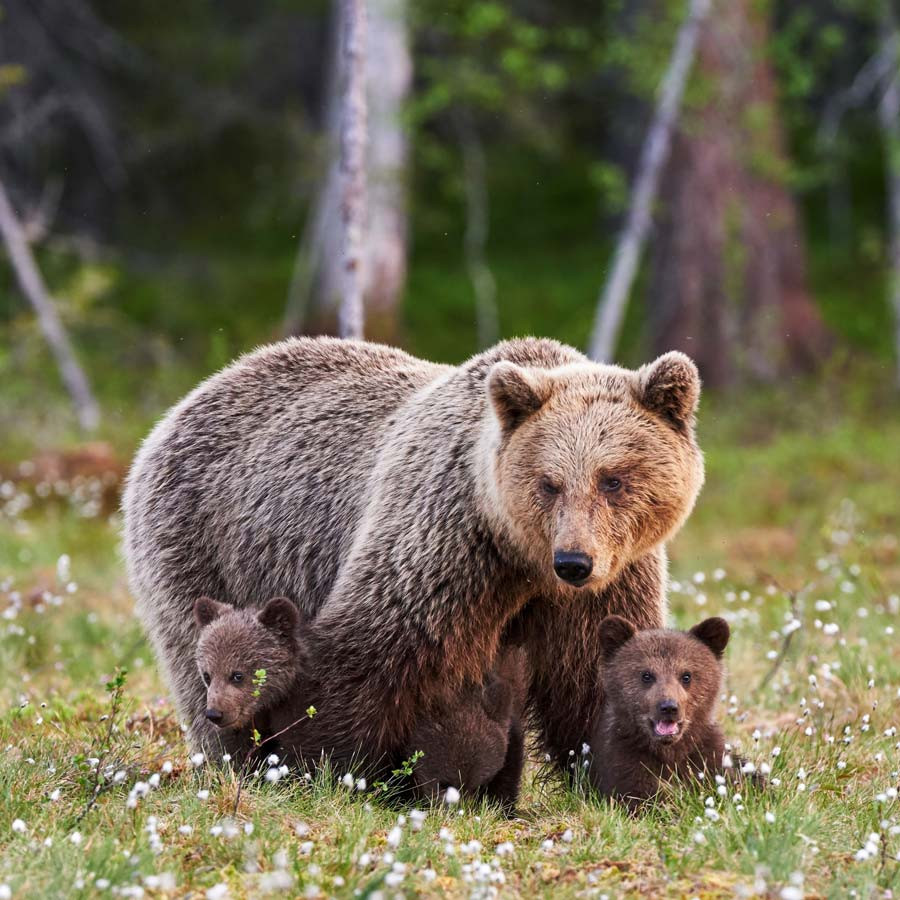
Mother Bear And Two Cubs
During this time, the mother bear does all that she can to ensure her cubs are taught all they need to survive. She will also protect them in case something threatens them. This crazy story, however, is a bit different.
The Setting
The setting of our story is Russia, more specifically, Lake Vygozero, a freshwater lake in the northwestern part of the country. Tt is extremely cold there, and temperatures average around -4 degrees F (-20 degrees C). This area is like a frozen tundra.
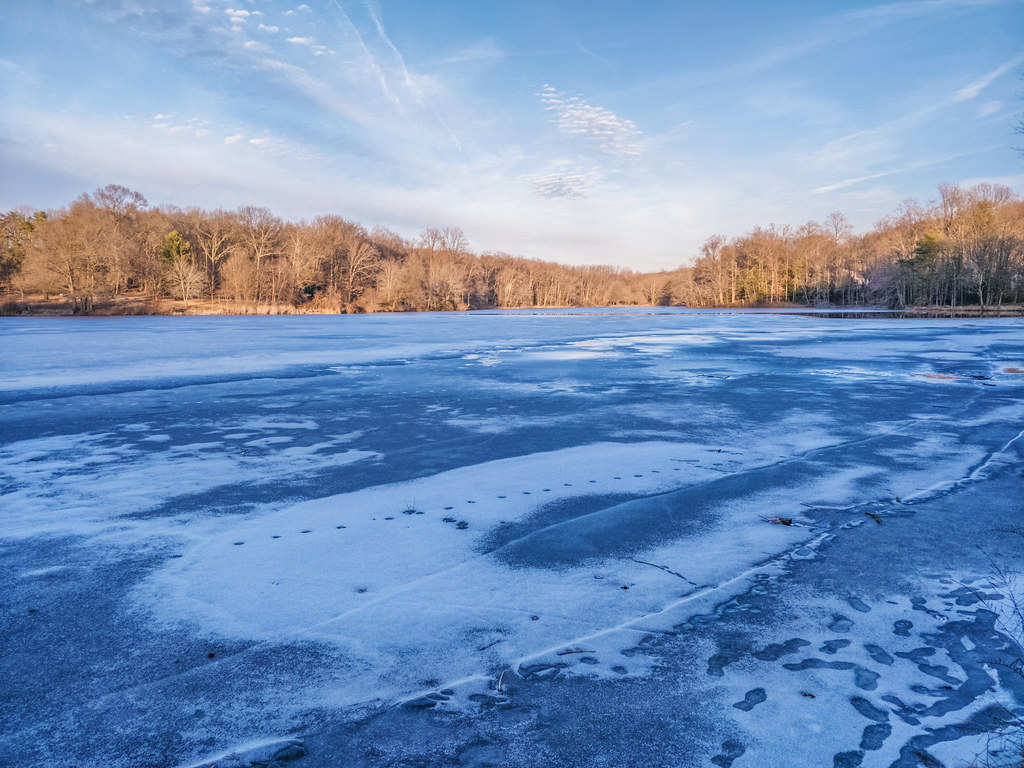
Icy Lake
As you might imagine, with these freezing temperatures, it can be very dangerous for people who live in the area. This includes fishermen, who use the lake as a source of food. Lake Vygozero is also dangerous for the local wildlife, including the bears.
Dangerous Conditions
Living in the wild is not easy or simple, and it doesn’t matter if you are a human or a bear. The bears in this story might have been made for these conditions, but that doesn’t mean that danger couldn’t be around any corner.
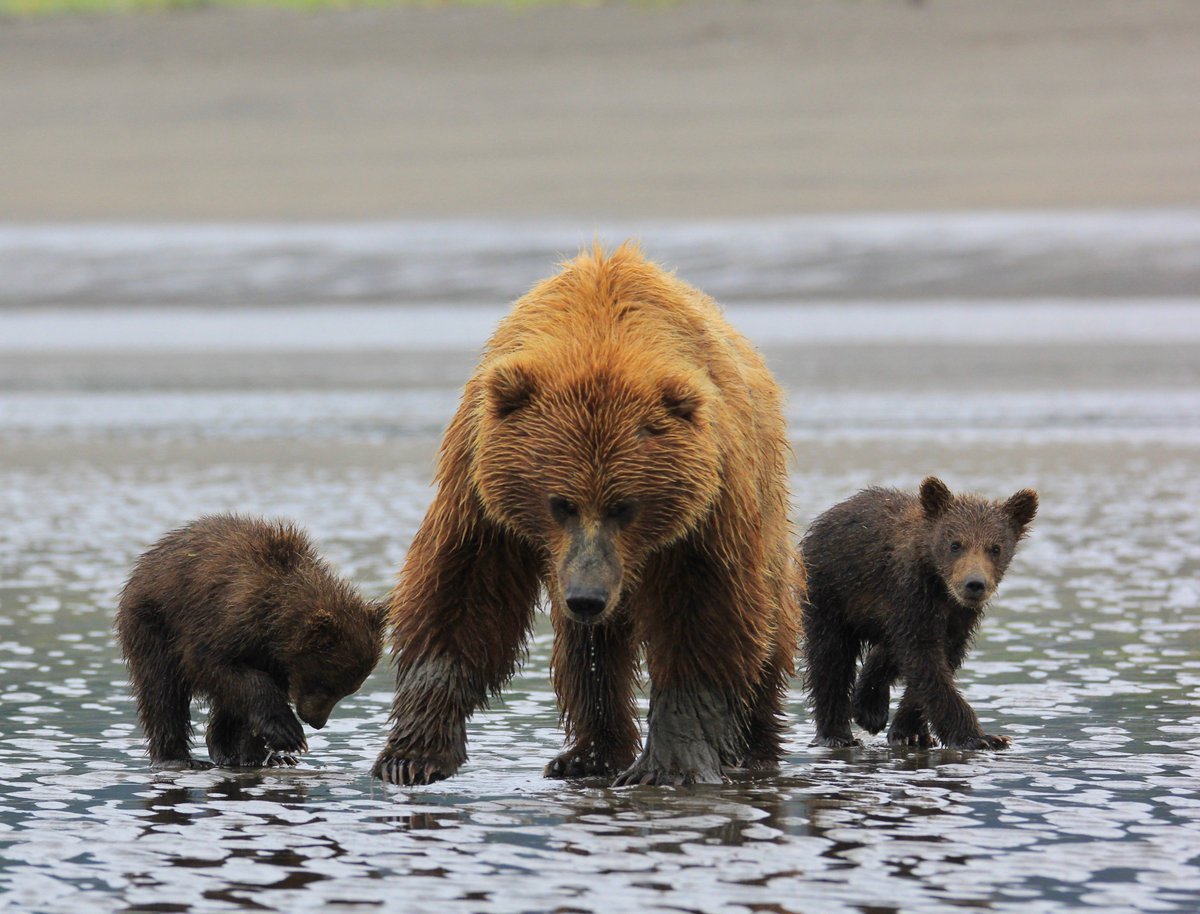
Bear And Cubs Crossing Lake
Lake Vygozero is a source of food for the bears, too, and it also offers a great teaching opportunity for cubs. That is likely what this bear was doing when she brought her cubs to the edge of the lake.
The Cubs Struggle to Keep Up
As this mother bear entered into the freezing lake, her cubs began to follow. This was common, as cubs tend to go where Mom does. In fact, the mother bear probably felt that it was fine to allow her cubs to accompany her.
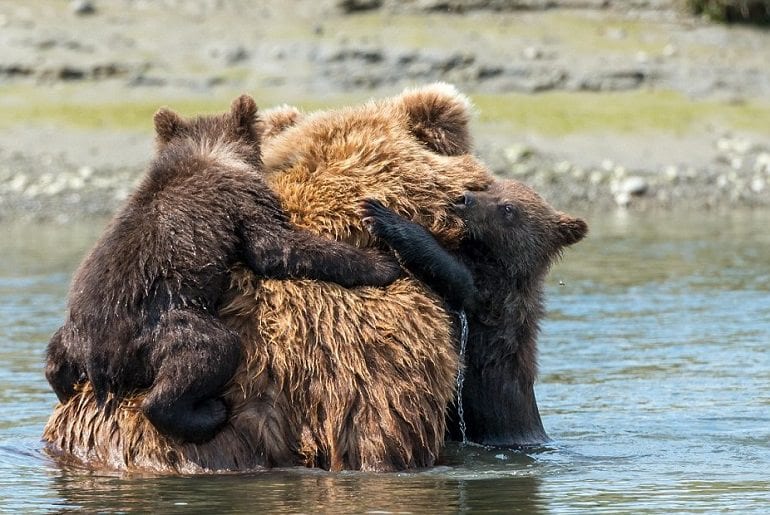
Bears In A Lake
The further the mother bear and her cubs got from the shore, the more the cubs started to fall behind. The mother bear started to realize that her babies could not keep up. Instead, they began to hold on to her.
The Mama Keeps Going
This is one of those times where the cruelty of nature can hit hard. As the mother bear and her cubs made their way across the lake, she was having a difficult time. In fact, she knew that she couldn’t make it across with both cubs.
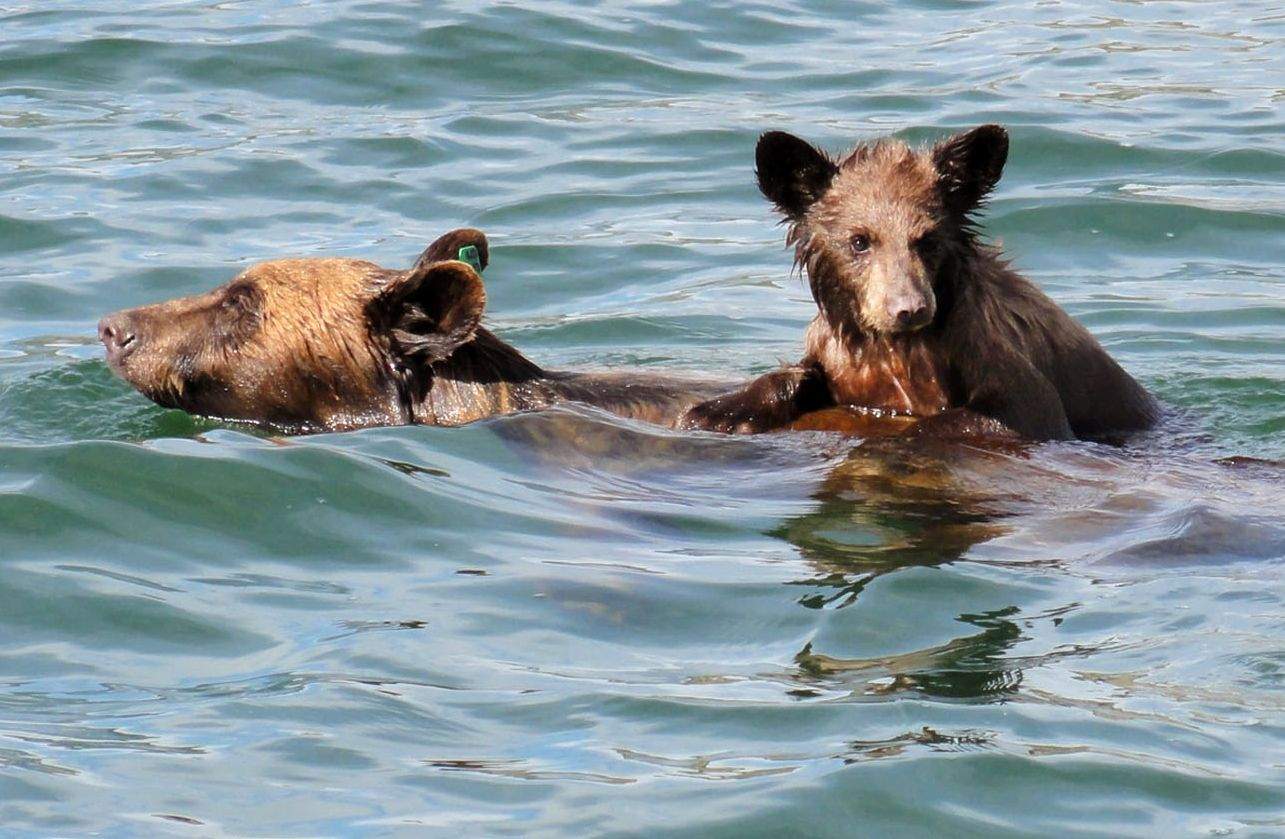
Mama Bear Carrying Her Cub
What was a mother bear supposed to do? She had two choices. She could keep going, putting all three of them at risk of drowning, or she could let her cubs go, hope for the best, and get herself safely to shore.
The Mother Bear Makes a Choice
In this case, the mother chose to keep her cubs close to her side. She would do her best to keep all three of them safe. However, the lake was getting rough, and the waves were making it so hard to keep her above water.
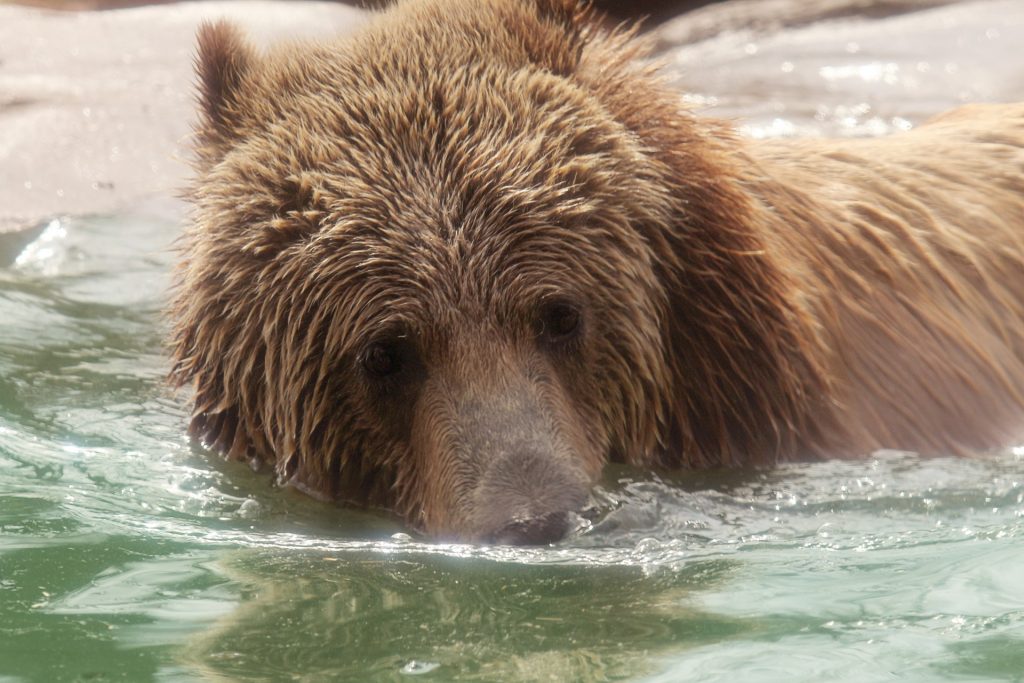
Bear Swimming
However, the current was too strong, and soon the three of them were separated. There was nothing she could do except watch as her cubs began to float away. The mother bear gathered all of her strength and kept swimming, hoping that her little cubs would do the same.
The Cubs Can’t Swim Well
Though the mother bear was able to swim back to shore, the cubs were not so lucky. They were still young and small, and they didn’t have the physical skills that their mother had. Both of the cubs were really struggling as the mother bear could only watch.
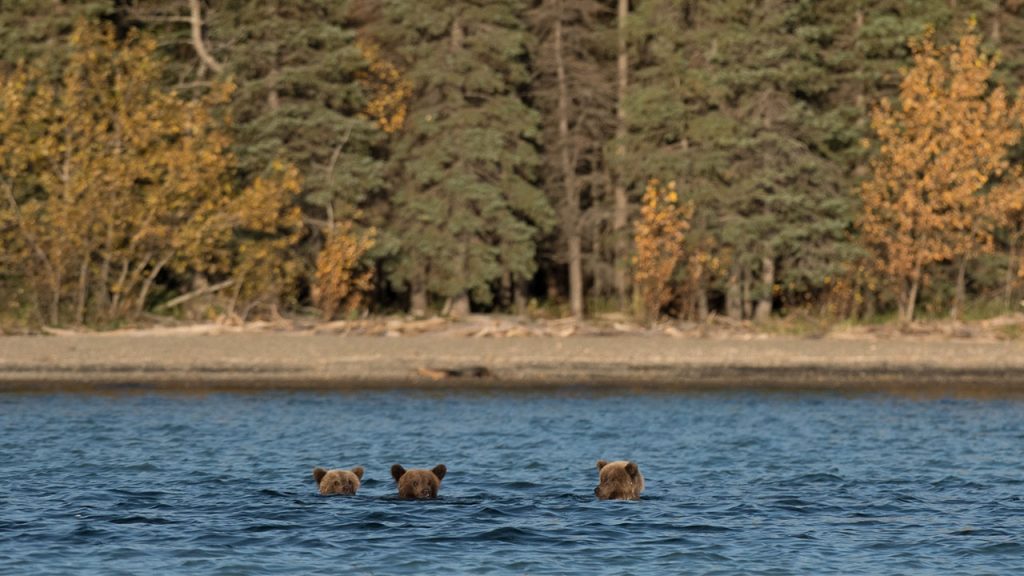
Bear Cubs Swimming
The bear cubs were quickly running out of energy, and they didn’t know how to swim well. Things didn’t look promising for these cubs, and the mother bear couldn’t do anything about it. Would all of them survive?
Are Bears Good Swimmers?
You might be wondering if bears are good swimmers. They are excellent swimmers, and all types of bears can swim, including those that live in Russia. However, bears don’t just come out of the womb being able to swim. They must learn.
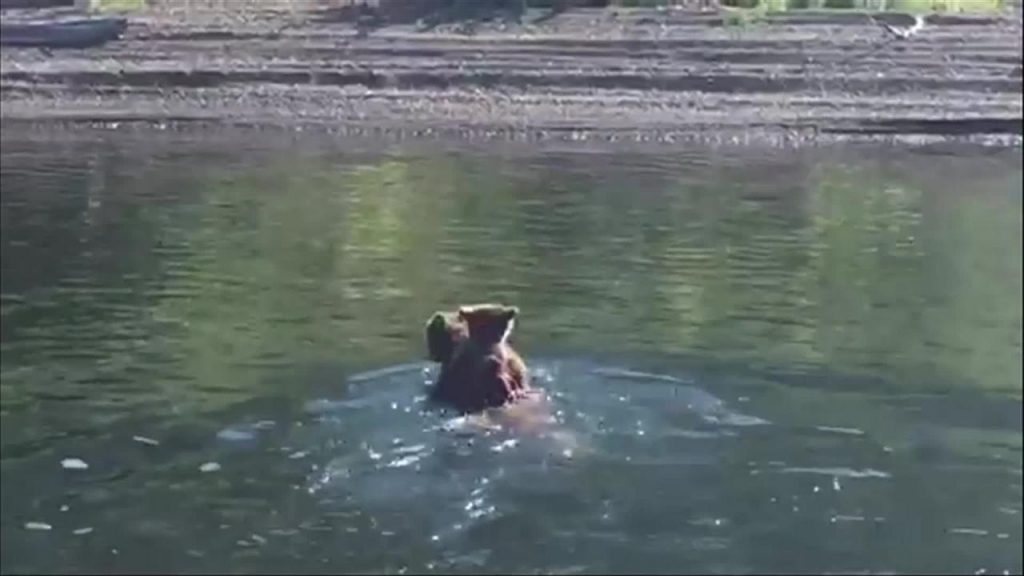
Baby Bears Swimming
It is important to remember that though a bear can swim, that doesn’t mean that they do it often. In fact, only a polar bear is truly at home in the water. In other cases, the bears only get into the water when necessary.
When Do Bears Learn To Swim?
Since a baby bear has to be taught how to swim, you might wonder when they learn this skill. But, they often can’t swim at all until they are around 30 pounds. These cubs weren’t much bigger than that.
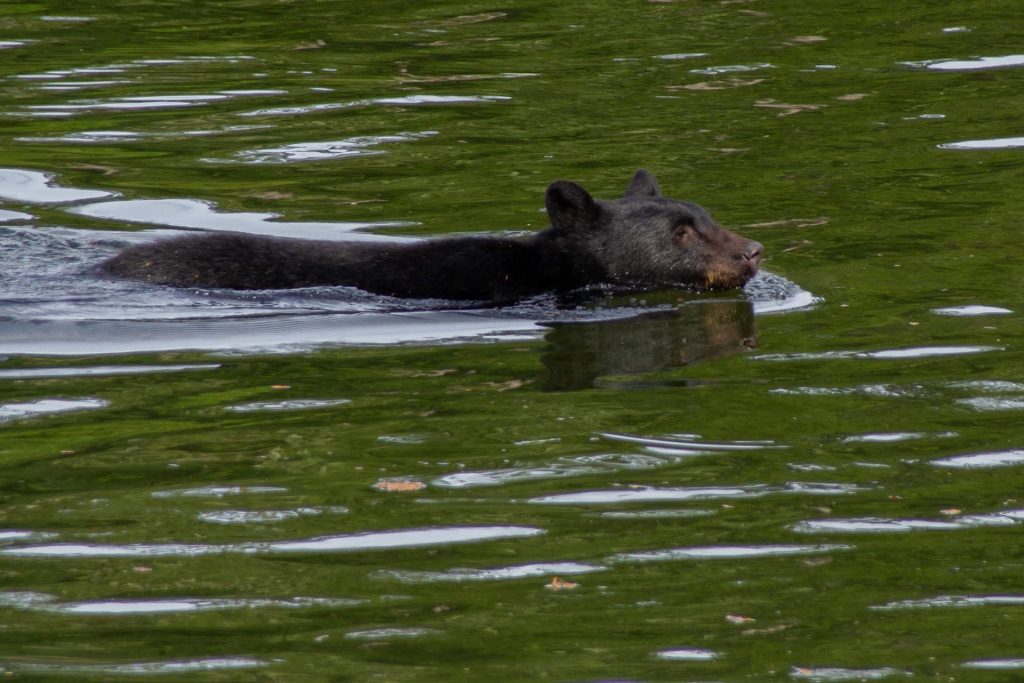
Swimming Black Bear
Bears know that it is important to teach their cubs to swim, especially as lakes and rivers can be a great place for hunting. But, there is danger, too, as cubs and other bears are prone to drowning in rough waters.
Back To Our Cubs
Now back to our struggling cubs. These cubs were small, and they were definitely not good swimmers. On top of that, they were losing strength quickly. Swimming takes a lot of energy, and the cubs were losing it fast.
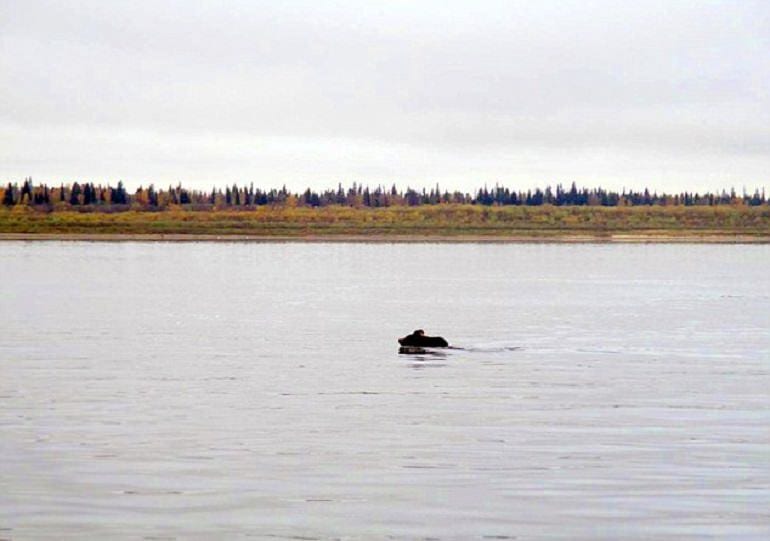
Struggling
The cubs would not be able to survive in the water long. Their mother had been whisked away by the current and was safe, but the two cubs were barely holding on. These cubs would need a miracle if they were going to make it.
Treading Water
It must have been extremely scary for these young cubs. They had probably not been in the water much, and now they were without their mother. They were not strong swimmers either.
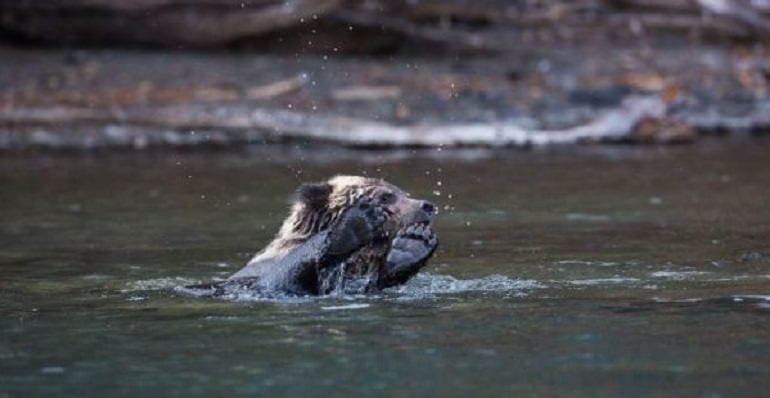
Holding On
Since the bears were not strong swimmers, they would have to be able to at least tread water in order to keep their heads above the surface. The poor cubs would have to hang on, but things didn’t look good.
Hope was Lost…Or Was It?
For these bears, it seemed like there was no hope. Every move they made was expelling energy, and with their lack of swimming skills, things were looking very grim for these cubs. With every second that passed, the danger was building.
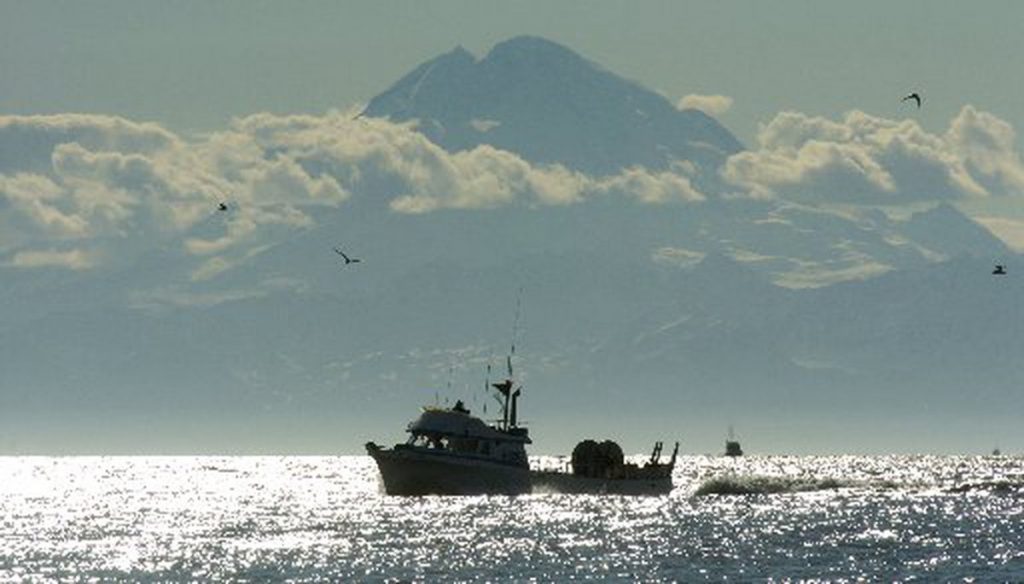
Fishing Boat
As the tiny cubs were struggling, there was suddenly a sign of hope. In the distance, there was an object, and it seemed as if it was getting closer to the bears. It was certainly on the water, and it could be exactly what the cubs needed.
It Was A Boat
The object in the distance was a boat. It was a fishing boat, in fact. Lake Vygozero is well known for fishing, so it was no surprise that a fishing boat would be nearby. The question was this…would the fishermen see the struggling cubs?
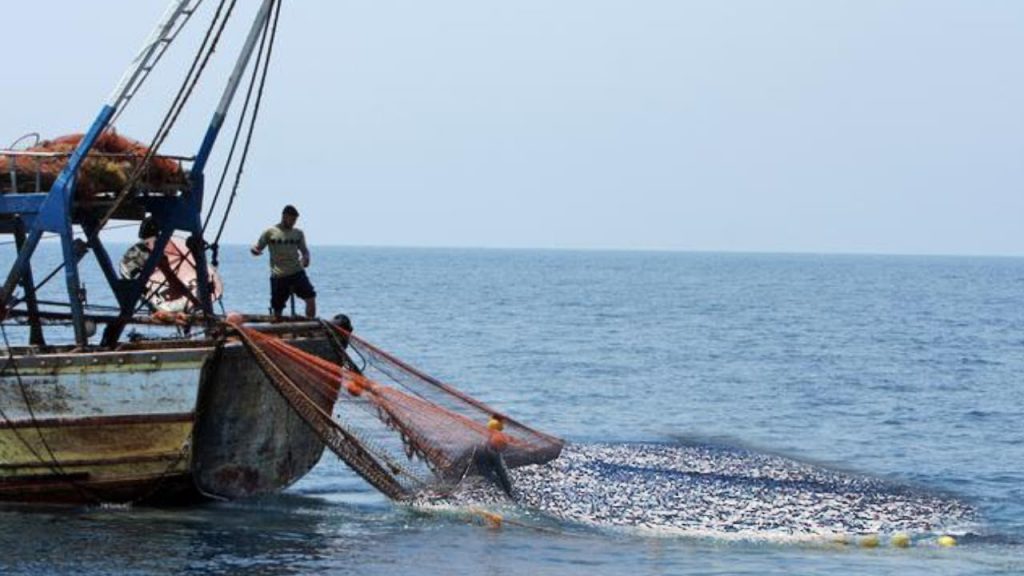
Fishermen Catching Fish
Though the bears and the fishing boat were close to each other, the fishermen didn’t see the struggling bears at first. They were much more focused on pulling in their catch of the day. Would these fishermen notice the struggling cubs?
The Fishermen Finally Notice
Though it seemed like a long shot, one of the fishermen noticed the cubs. He called out to his fellow fishermen and all of them ran over to see what the commotion was about. It was, of course, those little cubs.
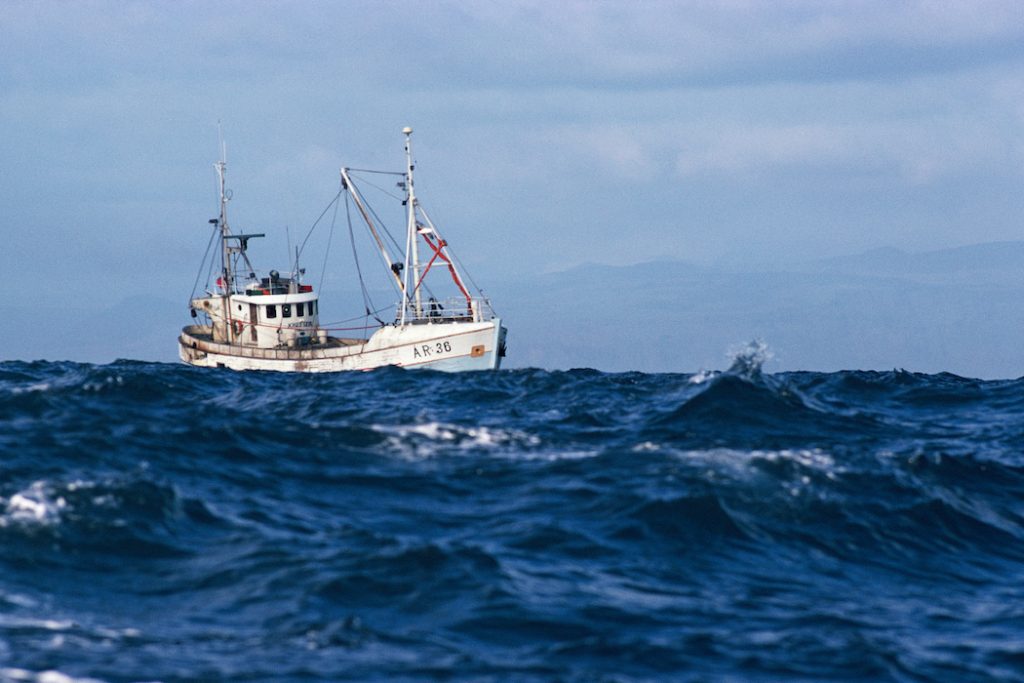
Fishing Boat At Sea
We already said that conditions on the lake were rough that day, and the fishermen could clearly see that the little bears were struggling. They knew they had to do something to save their lives, but what could they possibly do?
The Fishermen Notice Something
The cubs were small and would not be extremely dangerous to the fishermen. They could probably just reach into the water and pull out the bears. However, it was not a good idea because, suddenly, they noticed something…
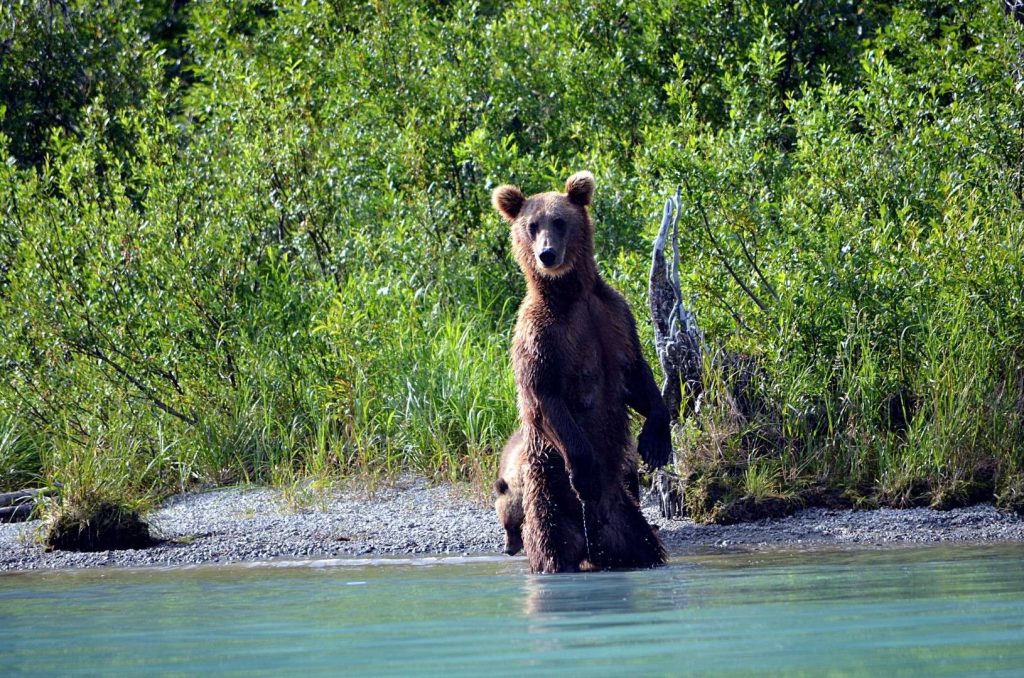
Bear Standing On The Shore
Off in the distance, they could see another bear…a bigger bear, and it was not one they wanted to mess with. This was none other than the mother of the cubs, and the fishermen didn’t know what she might do if she saw them handling the cubs.
What Was the Best Move Here?
Now it was time for the fishermen to make a decision. They could try to scoop up the cubs and save them at risk of upsetting the mother bear. If they did this, however, it might actually upset the mother bear, and then it wasn’t out of the question for her to try to attack.
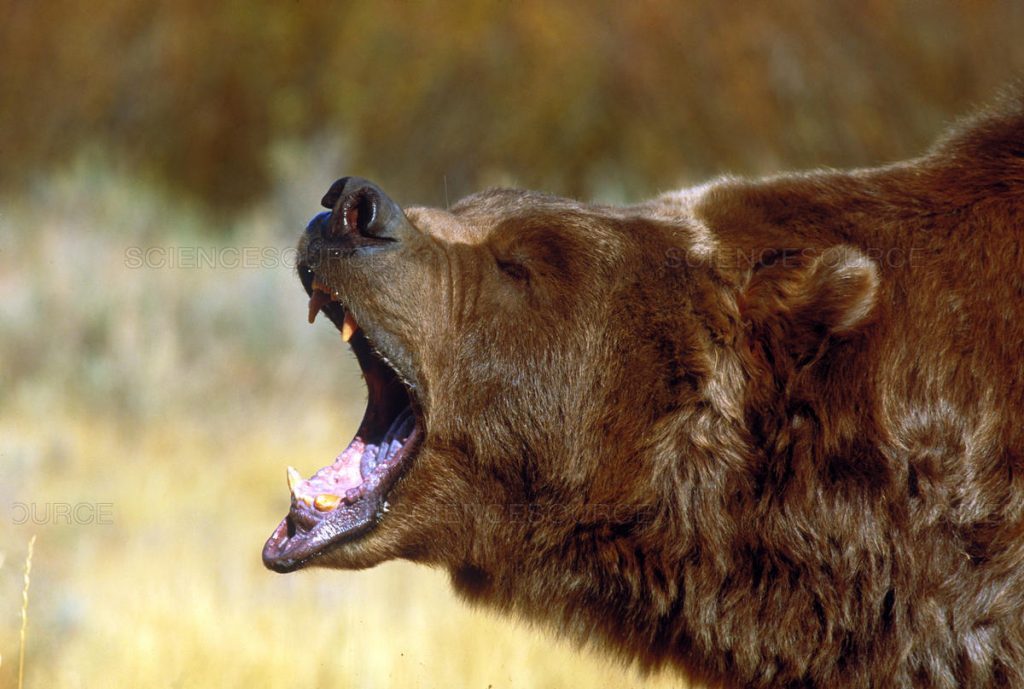
Bear Growling
The other option for the fishermen was to try to move the cubs further away from the mother bear. If they could get the cubs away from the mother, they might have a chance of saving them. Could they actually pull it off?
The Fishermen Swing Into Action
With the first part of the plan in place, the fishermen did their best to move the boat…and the cubs…away from the mother bear. At the same time, however, they had to figure out what they would do with the cubs once they got them on the boat!
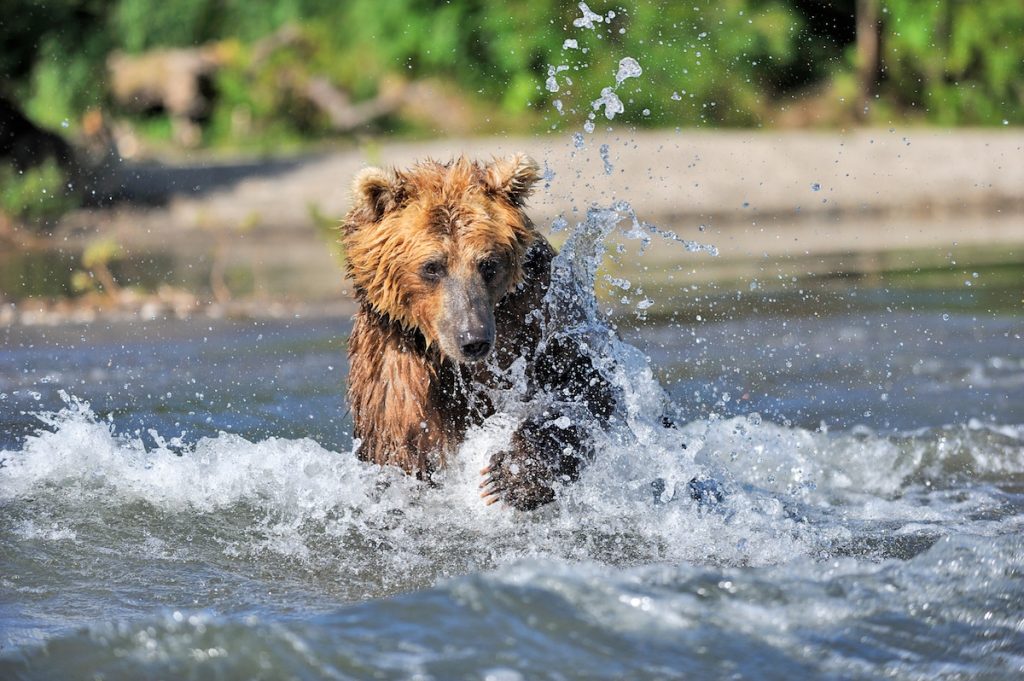
Bear In The Water
Time was passing quickly, and the little bears were continuing to struggle in the water. Their energy was falling fast, and the fishermen had to act quickly if they were going to save the lives of these cubs.
One Fishermen Starts Recording
As they finally got far enough away from the mother bear to feel safe, one of the fishermen took out his phone and started recording. Just as he did, the cubs were close enough to realize that the boat was stable and safe.
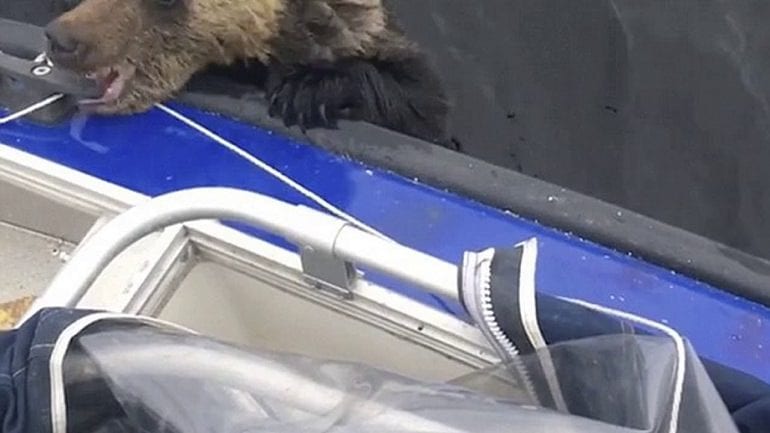
Cub Trying To Take Hold
The cubs could tell that the boat would be a way that they could get out of the water, and the fisherman filmed the scene as the cub grabbed onto the boat with all of its strength. Could it hold on?
Scooping Up a Cub
With the cub trying its best to get up on the boat, another fisherman decided to lend it a hand. He grabbed a net and tried to scoop the little bear up into the boat. He figured even if he couldn’t get the bear up, he could at least support it.
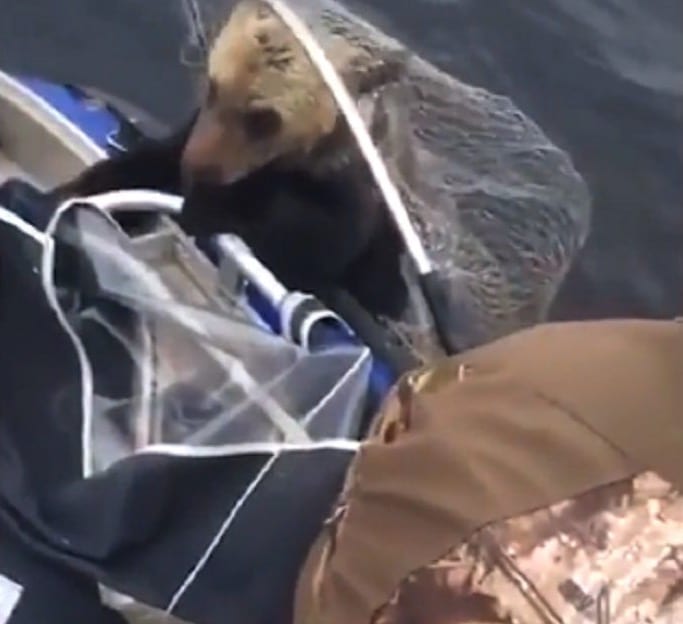
Cub In A Net
This was quite the brave thing to do. While the fisherman had the best intentions in mind, he was still reaching out to a wild animal. The little bear’s behavior was unpredictable. However, despite this fact, the fisherman did his best to help the little cub out.
The Net Won’t Work
Unfortunately, the fisherman quickly learned that the net he was trying to use to scoop up the bear just wasn’t strong enough. It was made for smaller fish…not larger bear cubs. What else could the fishermen try to do in order to save these cubs?
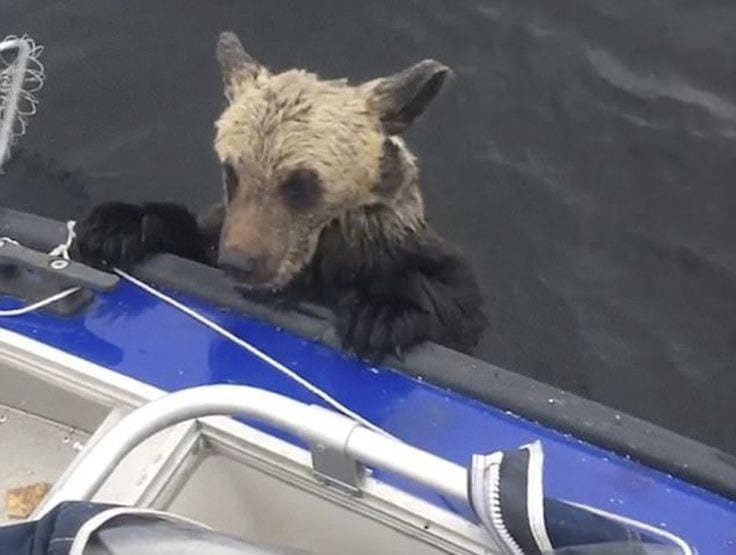
The Cub Struggles To Hold On
The cub was desperately holding on to the side of the boat. The fishermen could see its claws doing their best to keep the bear out of the water. They were hoping that the bear could pull itself up, but is was so over-exhausted, it just couldn’t do it.
Helping the Bear Cub
One of the things that the crew thought they might do with the bear is to try to help it pull itself into the boat. This little cub, however, was way too tired to do it. So, the fishermen gathered up their fishing tools, including nets and ropes, to try to lend a hand.
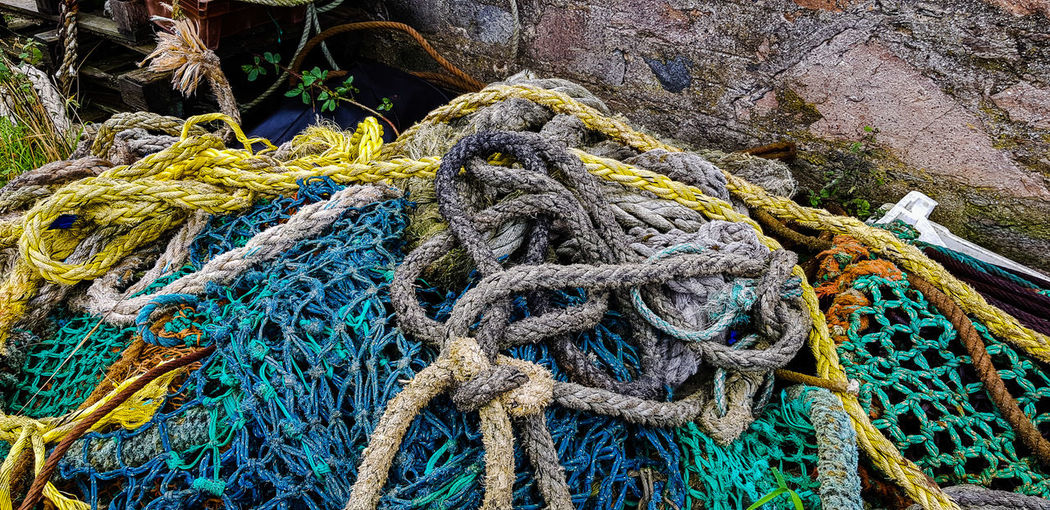
Fishing Nets And Ropes
They tried to throw the ropes, poles, and other tools out to the bear in hopes that they could pull it in, but it wasn’t working. The bear was still struggling to keep itself from drowning. Would they be able to help the bear in time?
The Bear Has a Plan, Too
As much as the fishermen were trying to save this little bear, it was also trying to save itself. It knew the boat was a stable place, and if it could get up on the boat, it would be out of the water.

Bear Teeth
How did the bear do this? It used one of its best assets…its teeth. The baby bear started gnashing its teeth to try to connect with something that it could use to pull itself up. Would the little bear finally find safety?
The Bear Holds on for Its Life
With its teeth, the little bear held on for dear life to the side of the boat. It was the only way that it could rest its limbs for a moment and possibly get pulled up to safety. The minutes were ticking by.
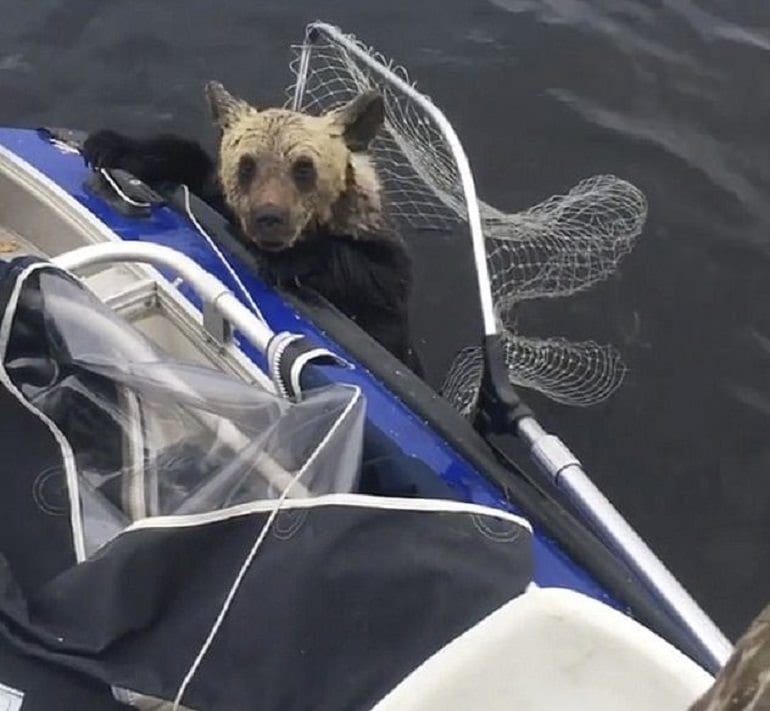
Bear Holds On
The bear was not out of the woods yet, and the fishermen were trying their best to get the little bears to safety. However, they were still not able to reach out and grab the cubs. What would their next move be?
The Fishermen Think About What They Should Do
The way the boat was set up did not make it very conducive to reaching out and pulling the bear up. There was also the fact that the boat was very slippery where the bears were. If the fishermen tried to get them, they could fall into the water.
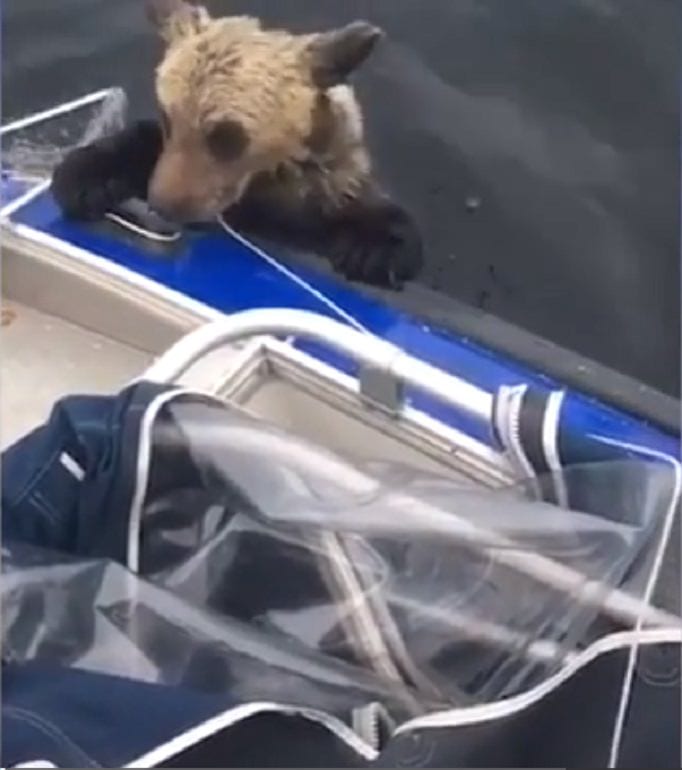
The Bear Keeps Holding On
They also knew that the only way that they could even approach the bears to get them up onto the boat was to gain their trust. It was very possible that the bear would get spooked if a human came too close, and again, it would fall into the water.
Suddenly, Something Happened
Suddenly, something changed. The bear that was holding onto the boat with its teeth turned towards the fisherman who was videotaping the day’s events. It almost seemed as if it was looking him right in the eye.
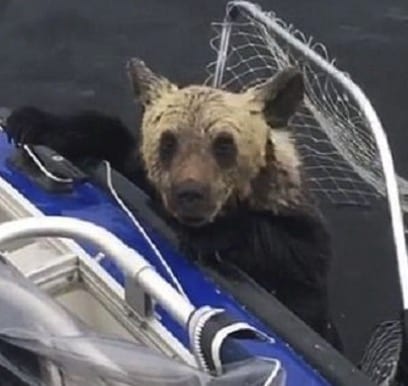
A Cry For Help?
Is it possible that the bear is giving the fishermen a sign that it needs help? Is it telling the men that it is okay to reach out and pull it into the boat? There were many questions at hand but only one answer.
They Had to Save These Bears
The fishermen knew they would have to save these cubs, so they went back to their first idea: the net. All of these men were professional fishermen, so if there is one thing they know how to use, it’s a fishing net.
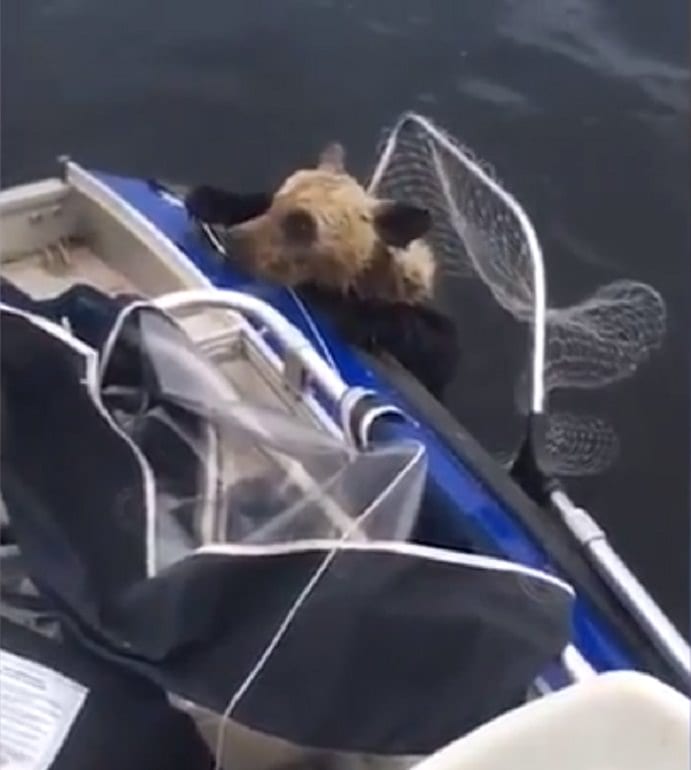
Bear In A Fishing Net
The fishermen still didn’t think that the net would be strong enough to keep the bear up, but they had to at least try to support it. So, they once again started to put the net near the bear to help it to safety.
Trying a Different Net
The first net, the one on the pole, wasn’t strong enough to do much, but since they were a fishing boat, they had a lot of nets on board…and these nets could not only handle the weight on one cub, but two.
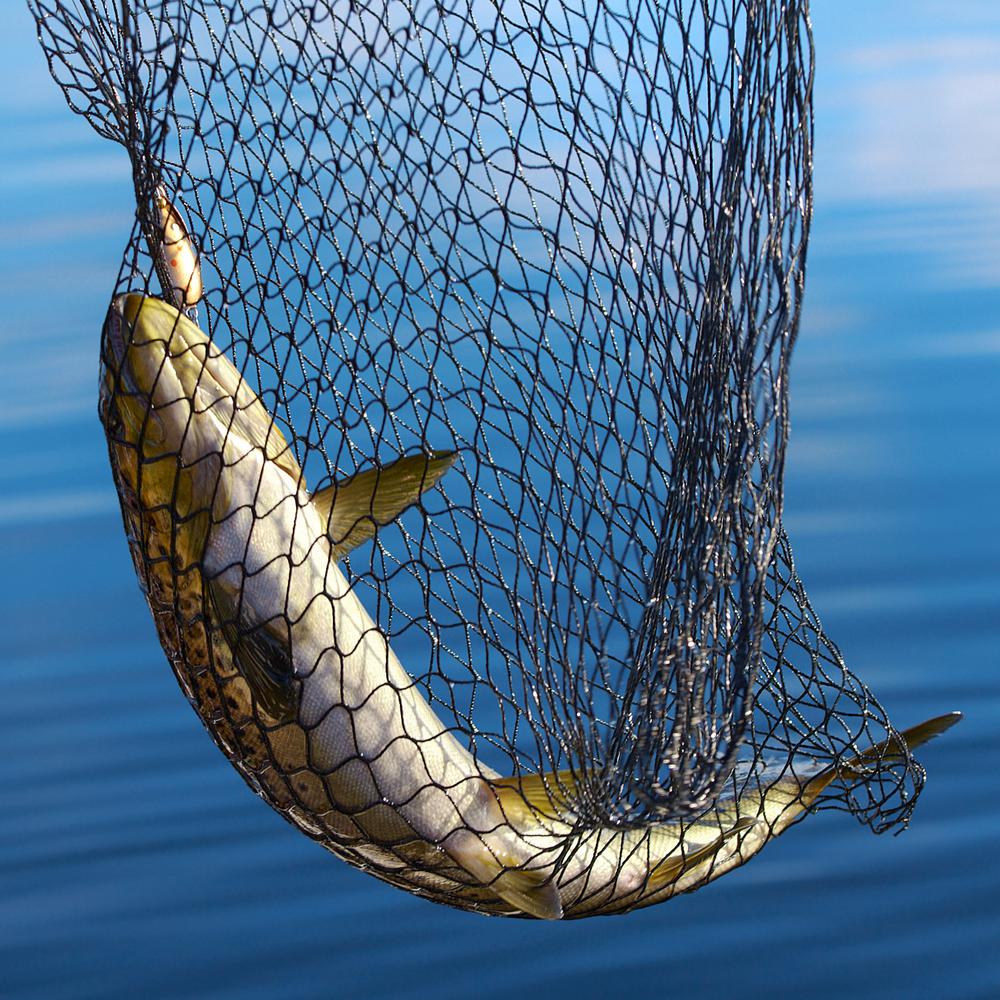
Fishing Net
With this net to offer a little support and the net on the pole to guide the bears up onto the boat, there was hope that this would work. Now that the fishermen had a plan, they had to hope that the bears would cooperate.
Weird for the Bears
The bears were certainly not used to the water, and they had probably never seen a human before…not to mention know what it was like to get caught up in a net. The fishermen were starting to doubt that this would work.
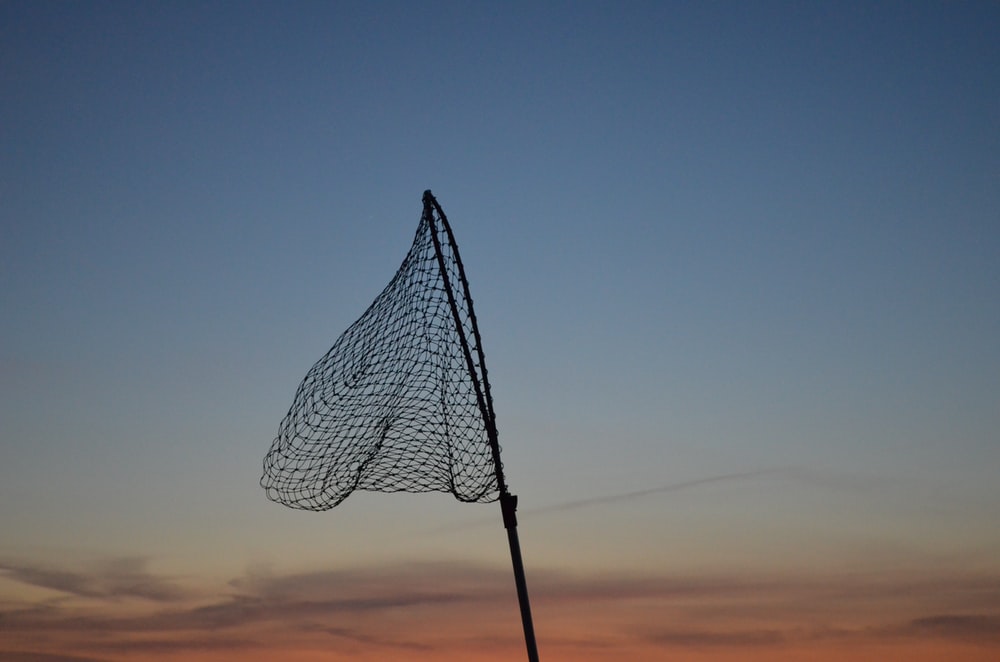
Net
The fishermen realized that these bears were wild animals. They might not take it well if they tried to just throw the net on the bears. In fact, they might scare the bears so much they would fall back into the water.
How Would the Bears React?
As the fishermen slowly and gently tried to get the bears used to the presence of the nets, the bears were a bit apprehensive. Since this was the only way to save the bears, the fishermen hoped that they would cooperate.
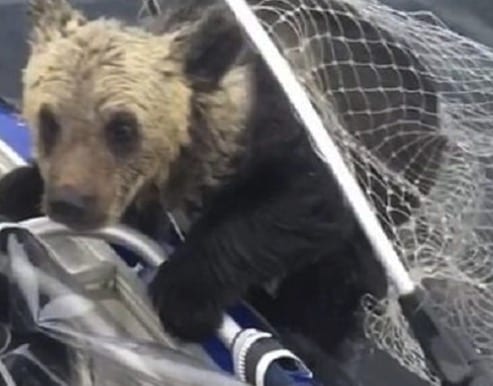
The Little Bear In The Net
The fishermen also needed to think of their own safety. If one of these bears got scared, its first instinct would be to bite or scratch. Anyone knows that bears, even cubs, have very sharp teeth and claws. Would this work?
Staying Calm
The most important thing that the fishermen could do was to stay calm. They therefore decided to speak in soft voices and make slow movements. The boat was bobbing up and down in the water but the fishermen were doing their best.
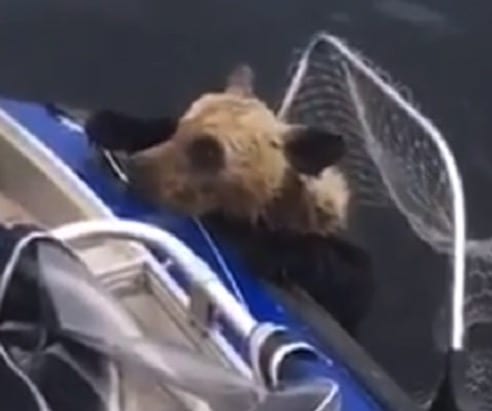
Staying Calm
They knew that they had to keep the cub as calm as possible for this work. Thought it was difficult, the fishermen were trying their best. They also knew that they didn’t have a lot of time because the cubs were extremely tired.
Was the Bear too Heavy?
As the fishermen tried their best to pull the bear up, they quickly realized that the cub was pretty heavy. Even though it was a baby, a bear cub was much bigger than the fish the net was made to capture.
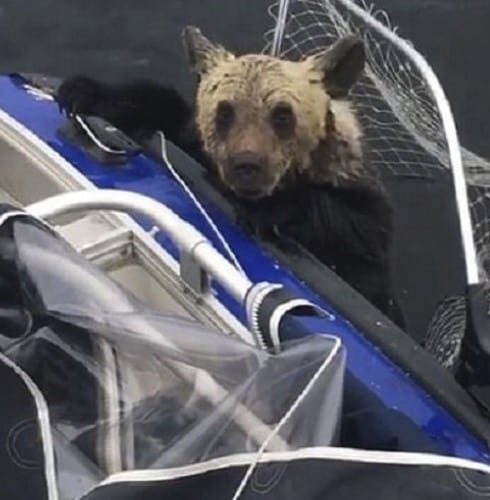
Too Heavy?
We aren’t sure how heavy these cubs were, but they were at least 30 pounds each since that is the weight that most bears start teaching their young to swim. Keep in mind that an adult bear can get up to 1300 pounds or more!
Would the Fishermen Be Able to Pull the Cub Up?
The big question here, even though the net was currently supporting the cub, is if the fishermen could pull it out of the water. Think about this…let’s say the bear is 35 pounds. That’s pretty heavy, right? But more is at play.
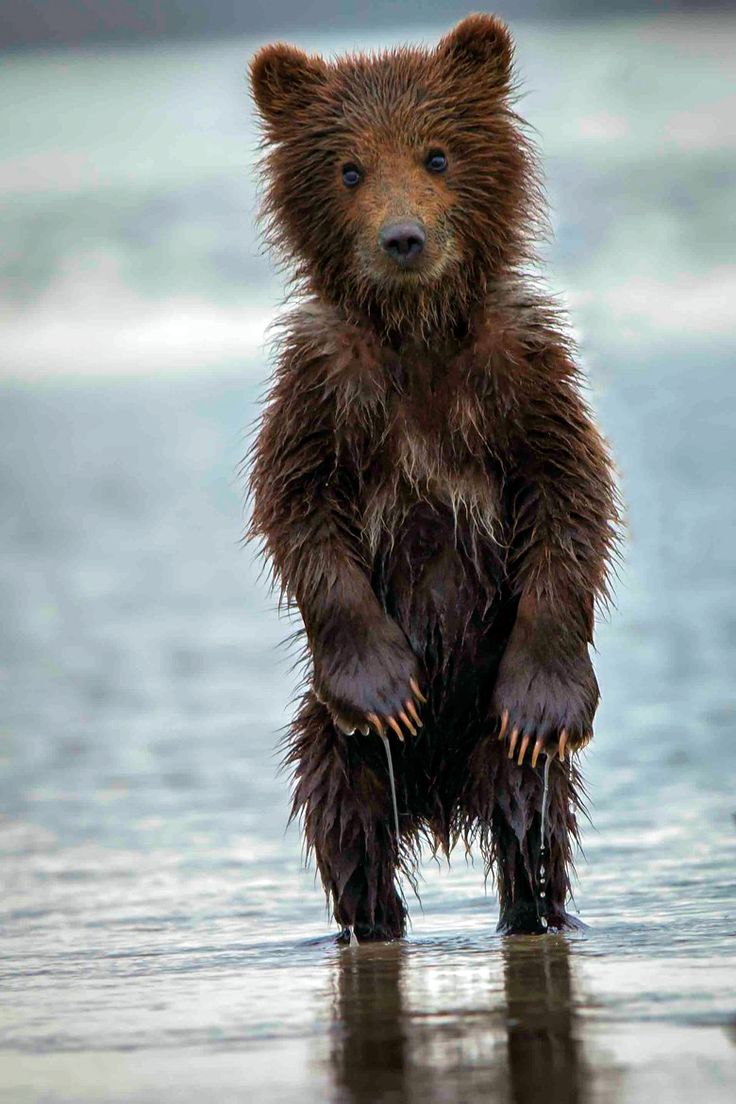
Wet Bear
On top of the weight of the bear, there is also the fact that it is wet…and all of that water is being held in the thick fur. This is adding even more weight. So, a relatively small 35-pound bear cub could be much heavier.
Moving Slow and Steady
For the moment the bear was stable and being held against the side of the boat by the net. The fishermen were taking it slow, as they knew that anything could go wrong at any time…and the bear would end up right back in the water instead of on land where they belong.
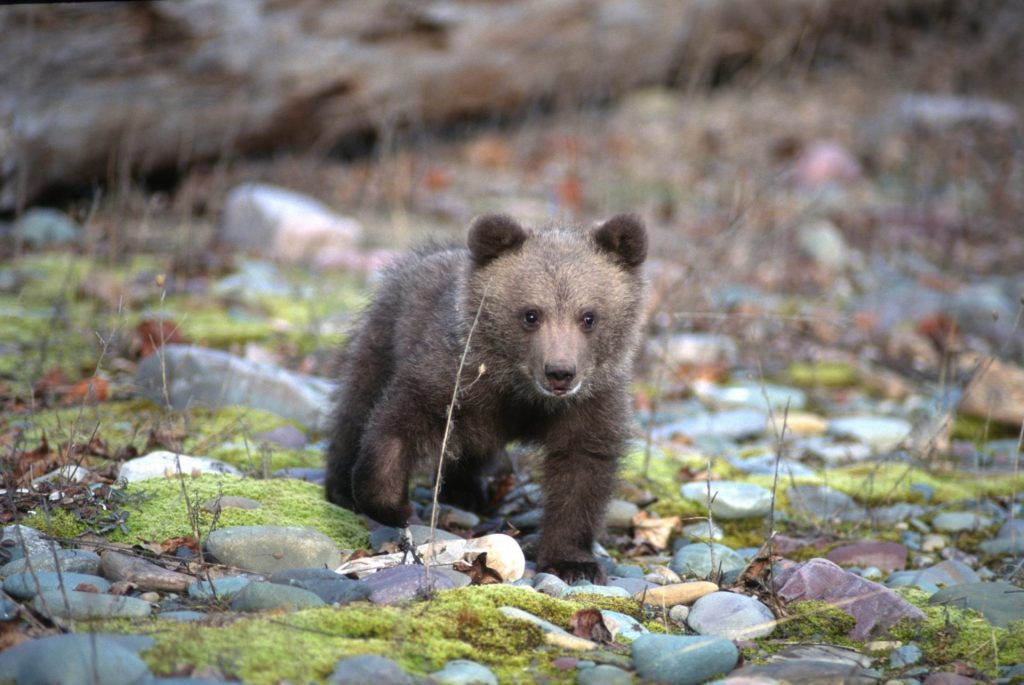
Baby Bear
By moving slow and steady, the fishermen were giving this little bear its best chance of survival. With every minute that passes, the crew was getting more worried that they wouldn’t be able to save this tiny cub.
Closer Than Ever
With the net moving right into place, the fishermen were able to cradle the body of the cub, which gave it more support. Now they were closer than ever to saving the life of this bear. The net was strong, but was it strong enough?
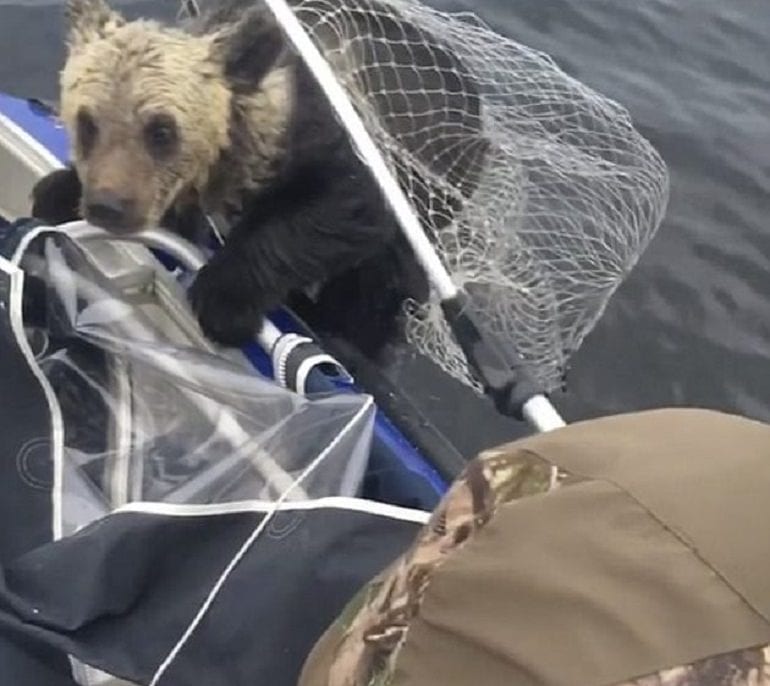
So Close
With the net holding the bear a bit better than before, it was now a bright spot in this daring rescue. The bear was able to get a better grip on the boat, which made the stress on the net lessen.
Pulling the Bear Up
With a bit more effort, the fishermen were able to give the bear more support. Thanks to this, the bear cub was able to use the last bits of strength it had, and it began to pull itself up.
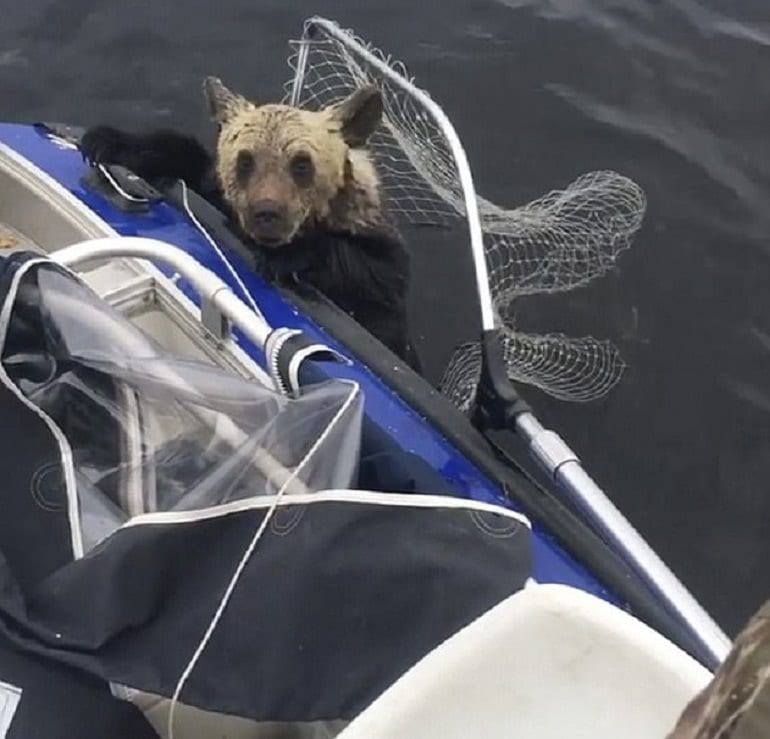
Getting The Bear On The Boat
The fishermen watched the bear pull itself up into the boat, and as the bear got closer and closer to being fully on the boat, the crew could barely hold their excitement. As the fishermen watched, the bear finally made its way out of the water.
What About the Other Bear?
With one bear up on the boat and out of the water, now, the fishermen wanted to focus on the second bear. However, in their efforts to get the first bear onto the boat, the second one was no longer nearby.
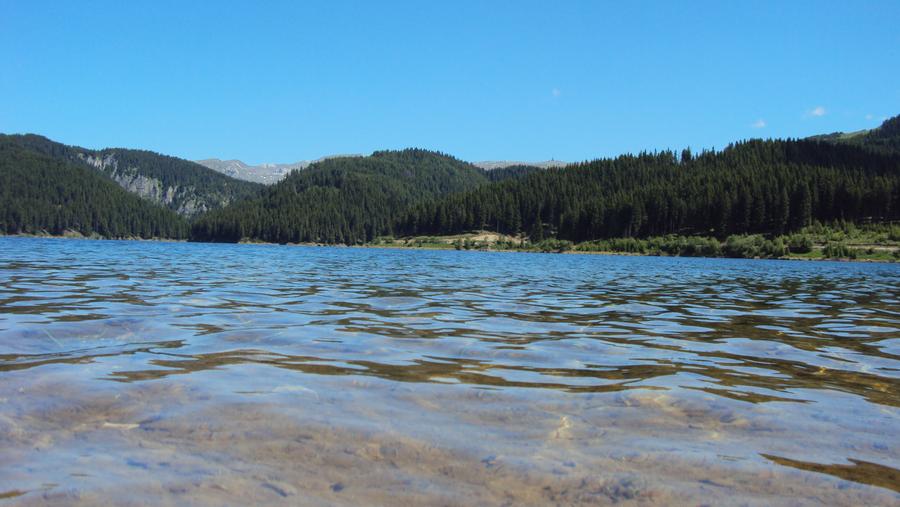
What About The Other Bear?
As the fishermen looked around the boat, they couldn’t see the other cub. Was it too late? Did they lose the other bear? Suddenly, one of the fishermen noticed, in the distance, a dark object in the water…was it the bear?
Helping the Second Bear
With the first bear safely on the boat, now they had to get close to the object floating in the water. As they moved closer, it was obvious that the object was, indeed, the bear. It was tired and certainly struggling.
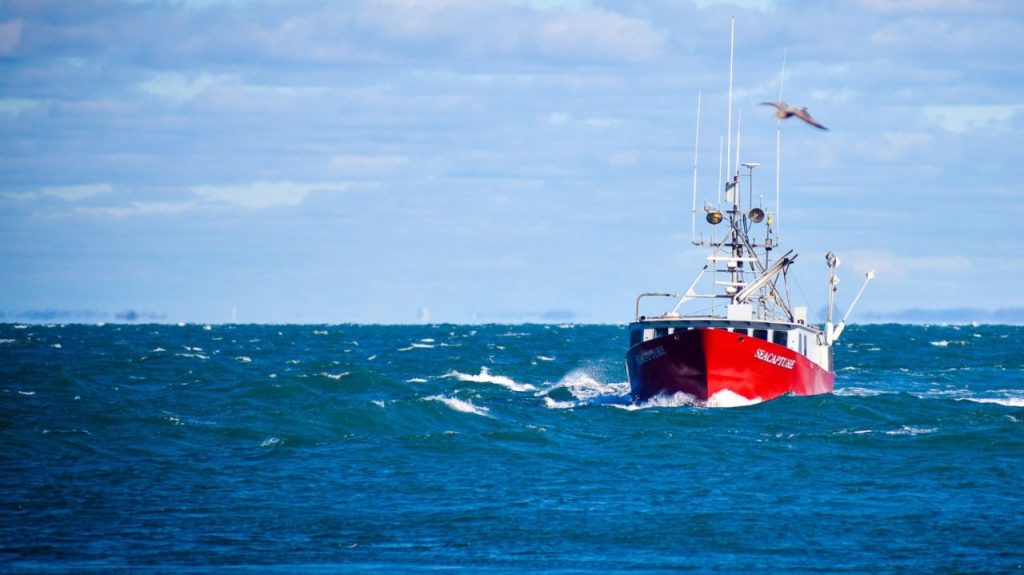
Fishing Boat On The Water
The fishermen got the boat as close to the bear cub as possible. However, they needed to move slowly, as they didn’t want to make the water too wavy, and they didn’t want to frighten the bear.
Reaching the Bear
As they got close the bear, they noticed that he was trying to get closer to them! The fishermen decided to try the same thing that they did with the first bear, so they readied their nets.
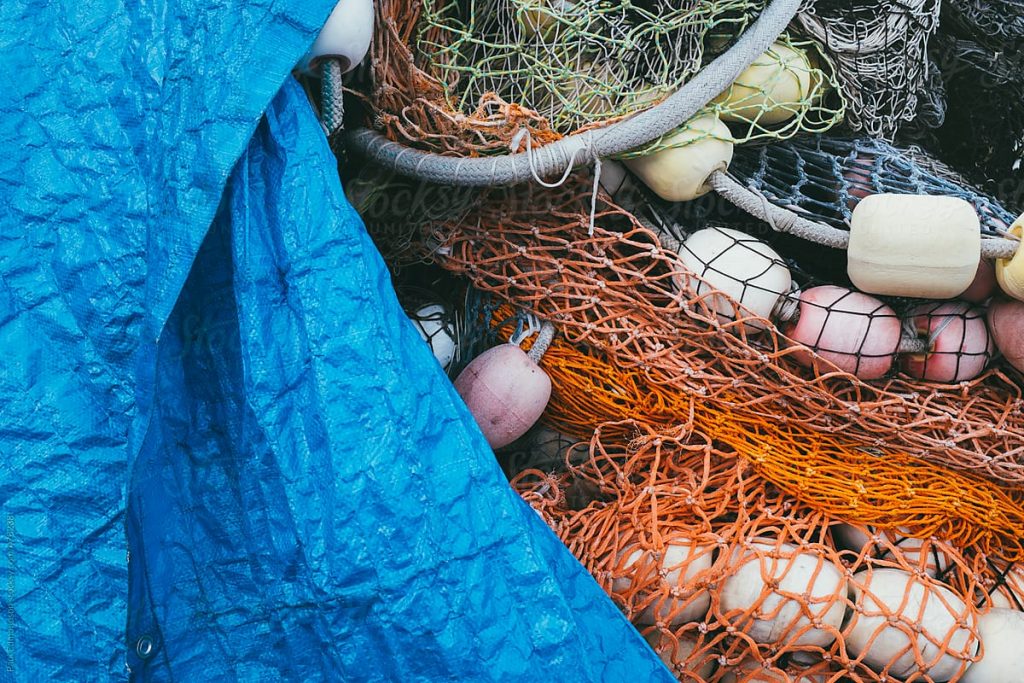
Fishing Nets
The fishermen knew that they had been successful the first time, so it was worth it to try the same methods with the second bear. They got as close as they could to the second cub and threw out the nets.
Would the Nets Work?
As the fishermen threw out their nets, they could immediately see that they hit the target. They had the small cub in their nets, and they were able to slowly start pulling it towards the boat.
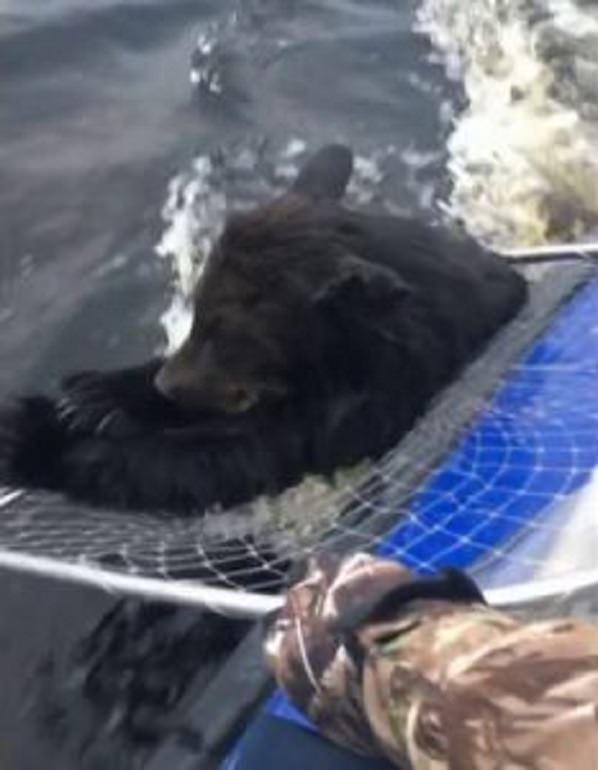
The Second Cub
They still had to go slow and gently pulled the cub towards the boat. It almost seemed like the bear was allowing the net to cradle it. This poor bear cub must have been totally exhausted. It looks like the boat made it just in time.
Both Bears on the Boat
Finally, with one more tug, they had the second bear on the boat. The fishermen took a few moments to celebrate their accomplishments. Against all odds, the men had successfully saved both of the baby bears from certain death.
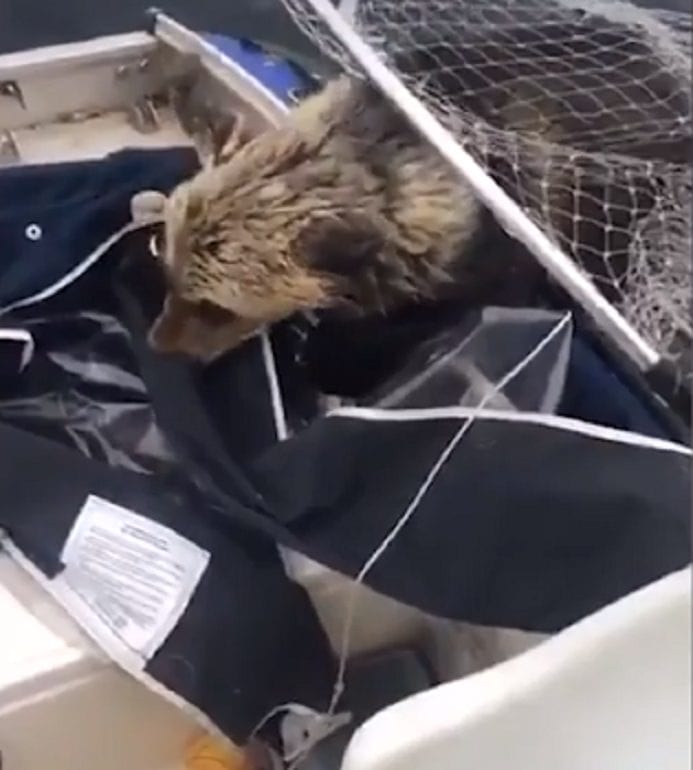
Bear On A Boat
The Bears Were Not Totally Safe
Now that the bears were on the boat, you might think that they were totally safe, and that the fishermen could just get them to shore. This, however, wasn’t quite the case. Just because they were out of the water, they were not out of danger.
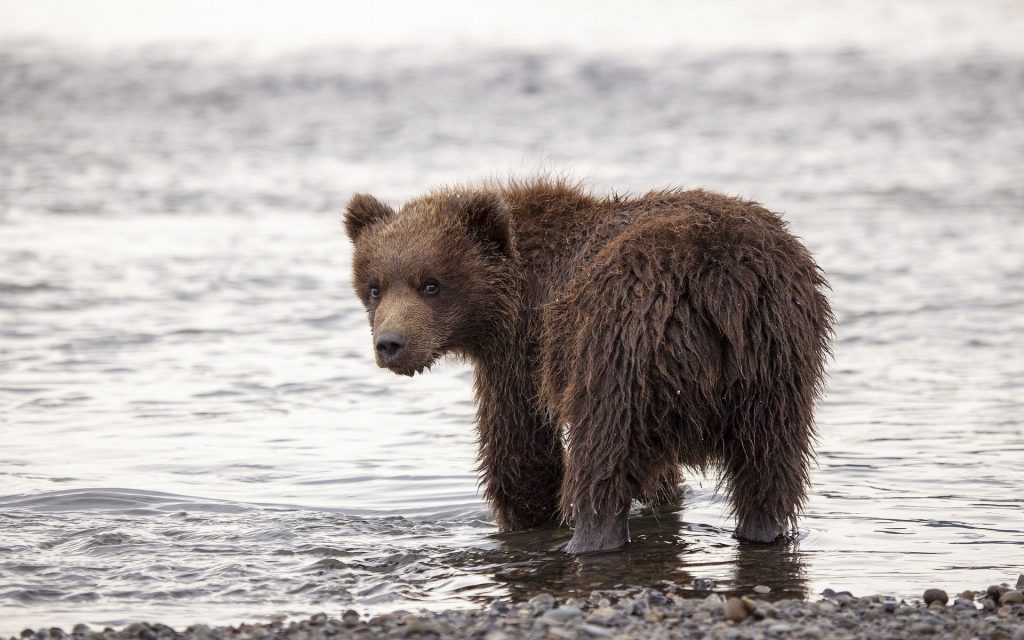
Cold, Wet Bear
This area of Russia was extremely cold, and when you add that to the sopping wet fur on these bears, they were absolutely freezing. Adult bears can handle these temperature extremes, but the baby bears were in extra danger.
The Bears were Scared, Too
Now that the bears were out of the water, which was terrifying, they now had something else to worry about. These baby bears had likely never met a human before, and now they were surrounded by these very scary creatures.
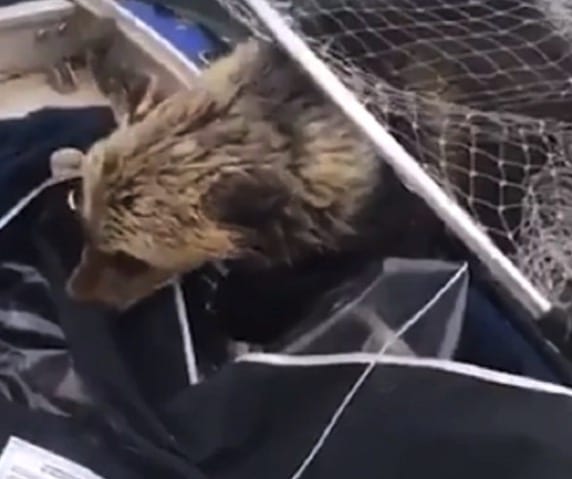
Shivering And Scared
Can you imagine how frightened these bears would be? They had just had a terrifying experience in the water almost drowning, now they were on a strange vessel with scary creatures that they have never seen before. They just sat and shivered.
The Fishermen Needed a Plan
Now the fishermen had to come up with a plan. They were in the middle of the lake, and they had two baby bears on their boat. They would have to do something in order to get them to shore and off the boat.
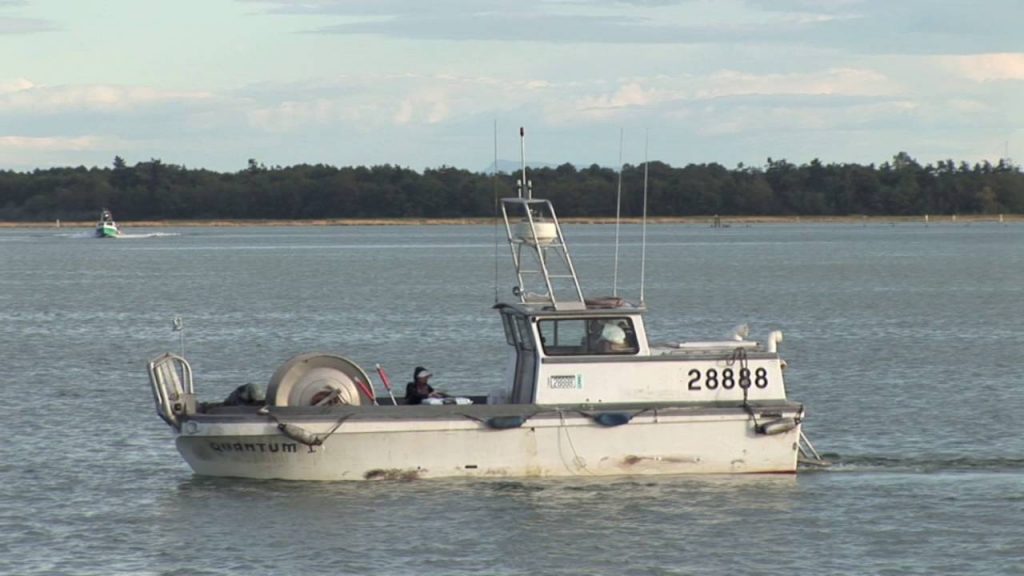
Fishing Boat Heading To Shore
The fishermen were loving having the bears with them, but they knew the bears were scared, and they also knew that they were wild animals. They had to get the bears back to their mother so that they could grow up like bears are supposed to.
Taking the Bears Home
The fishermen didn’t exactly see where the bears had come from, so they tried to make an educated guess. There were a lot of islands in Lake Vygozero, and the bears could have come from any of them!
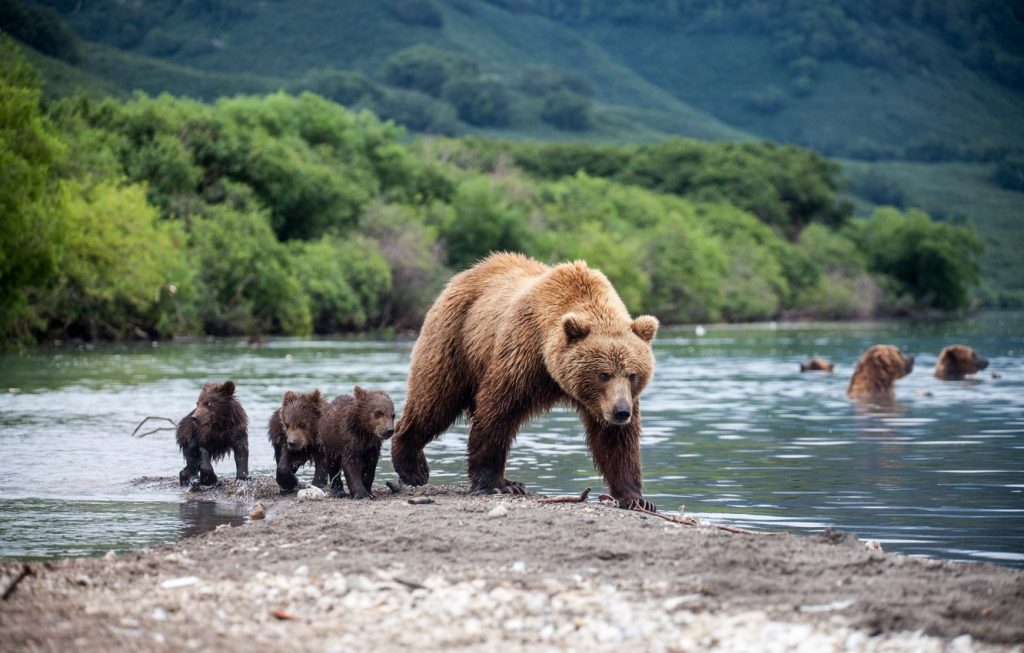
Bears On Shore
How many islands are on Lake Vygozero? There are technically more than 500 of them! Now, some of them are very small, so it would be unlikely the bears came from there, but there were plenty of other choices.
Making a Smart Choice
Since there were so many choices in regard to islands on Lake Vygozero, the fishermen had to make a smart decision. The fishermen decided to choose to move towards certain islands, but why did they choose those?
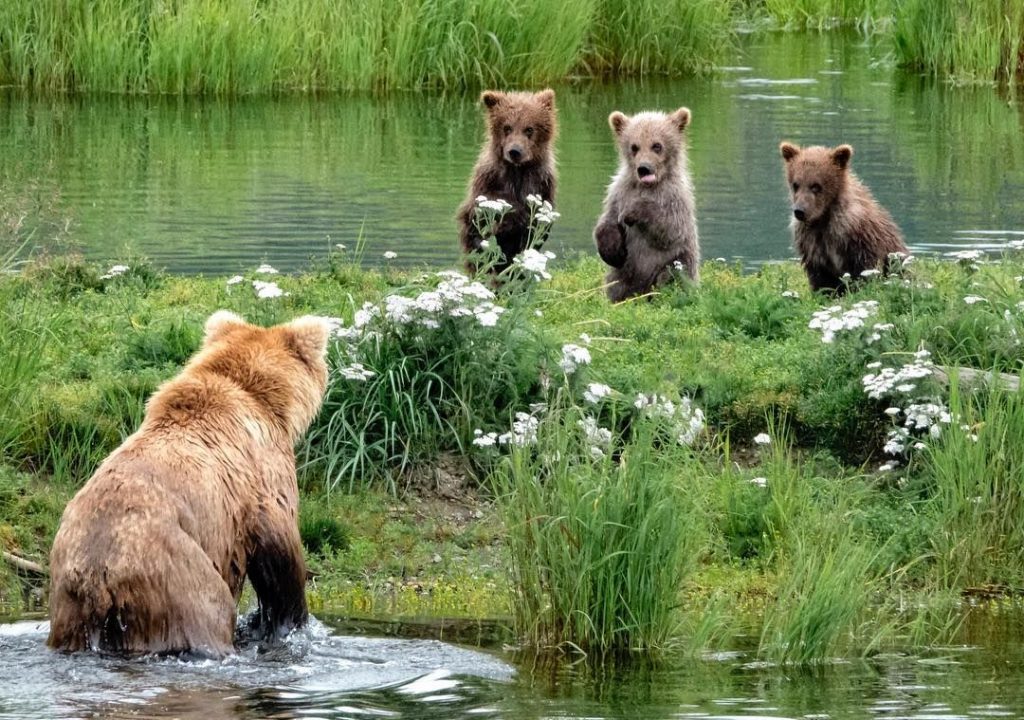
Cubs Waiting For Lunch
The fishermen decided that their best chance at returning the cubs to their mother was to head towards islands that were not only close to where they found the bears, but also those that were large enough to support a bear family.
What About the Mother?
The fishermen also knew that even if they could get the cubs to the right island, they didn’t know if they would survive without their mother. As far as the fishermen knew, the mother had abandoned them.
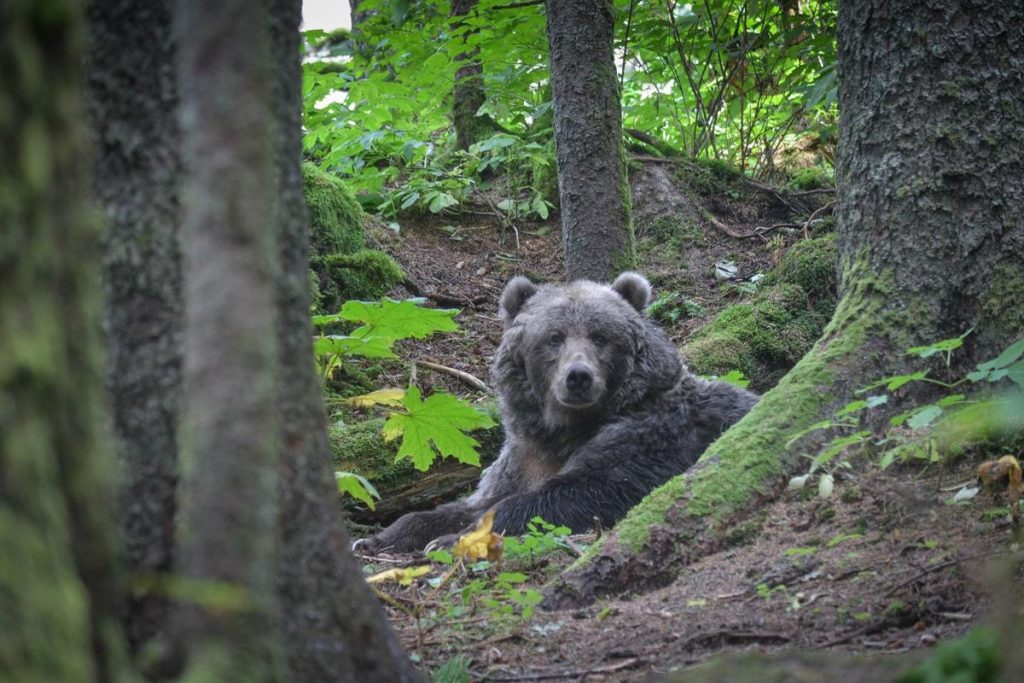
Bear Alone
They didn’t know how long the cubs could live on their own, or if they would even live through the night. They also didn’t know how old the cubs were, or if they knew how to hunt on their own. They were taking a big chance.
When Can Bears Live Without Their Mother?
In most cases, a bear cub stays with its mother until it is 18 months old. Only then can cubs truly survive on their own. If a baby bear is abandoned before this time, it is likely that it will not live long.
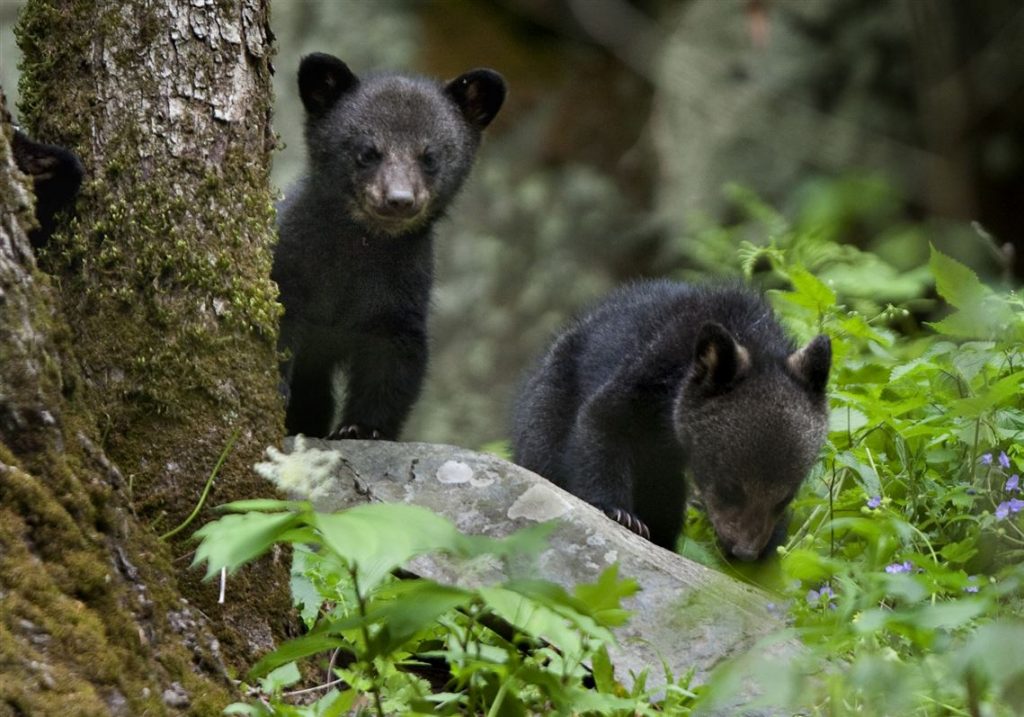
Baby Bear Cubs
Why does it take so long? A mother bear has a lot to teach her cubs including hunting, swimming, foraging, and protecting themselves. Generally, the cubs are pushed away when the mother gets pregnant again.
Brown Bears Might Stay Even Longer
Brown bears, like these, might even stay with their mother up to three years, so as you might imagine, these small cubs were certainly not equipped to survive on their own. However, the fishermen knew they had to do something.
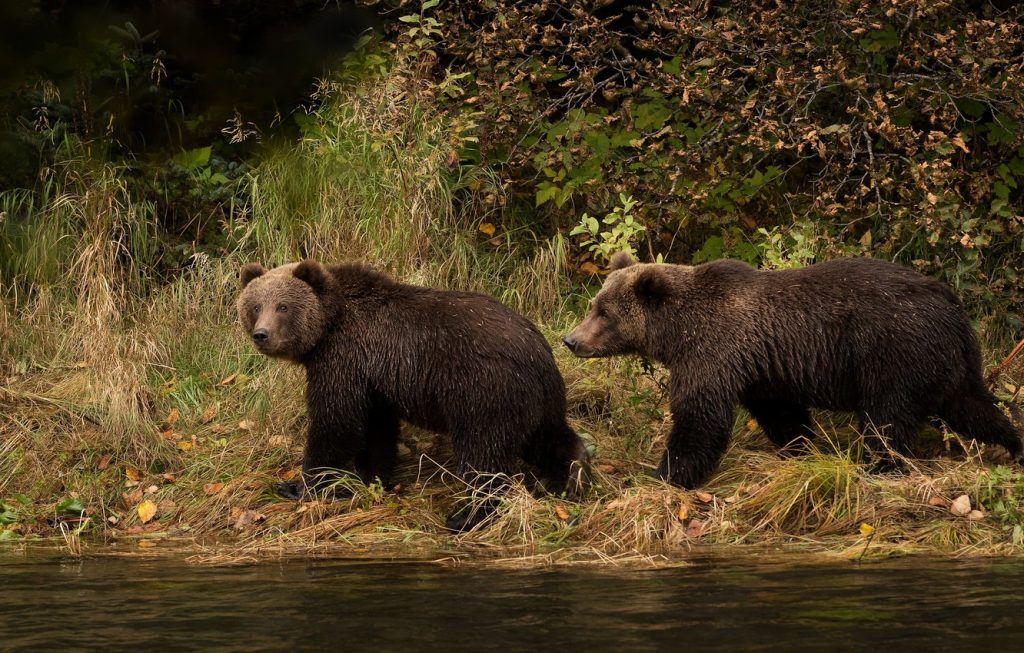
Two Adult Bears
The fishermen finally found an island that seemed like a likely place for a brown bear family to live. So they started heading towards the land. What they didn’t know, however, was if the mother would be there.
Why Would a Bear Leave Her Cubs?
The fishermen wondered why the mother bear would abandon her cubs in the first place. Or, did she abandon them at all? Perhaps she had not been so lucky and drowned in the lake. Since they didn’t see her, they didn’t know.
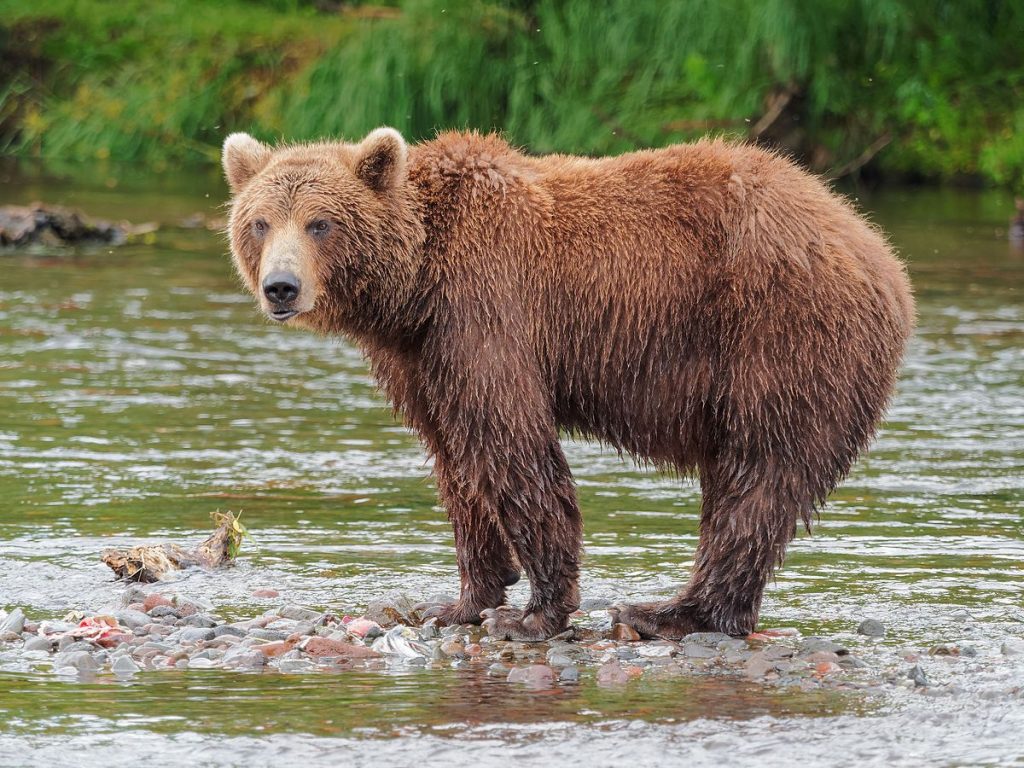
Single Brown Bear
There are actually many reasons why a mother bear might abandon her young. First, she might have gotten killed by something. Another reason is that the cubs are too weak or sick. She also might abandon them if they got separated.
What Happens to Abandoned Cubs?
Sadly, most abandoned bear cubs do not survive. They rely on their mothers for almost everything for the first one to three years of their lives. Even if they are older, say a year old, they might not have enough knowledge to survive.
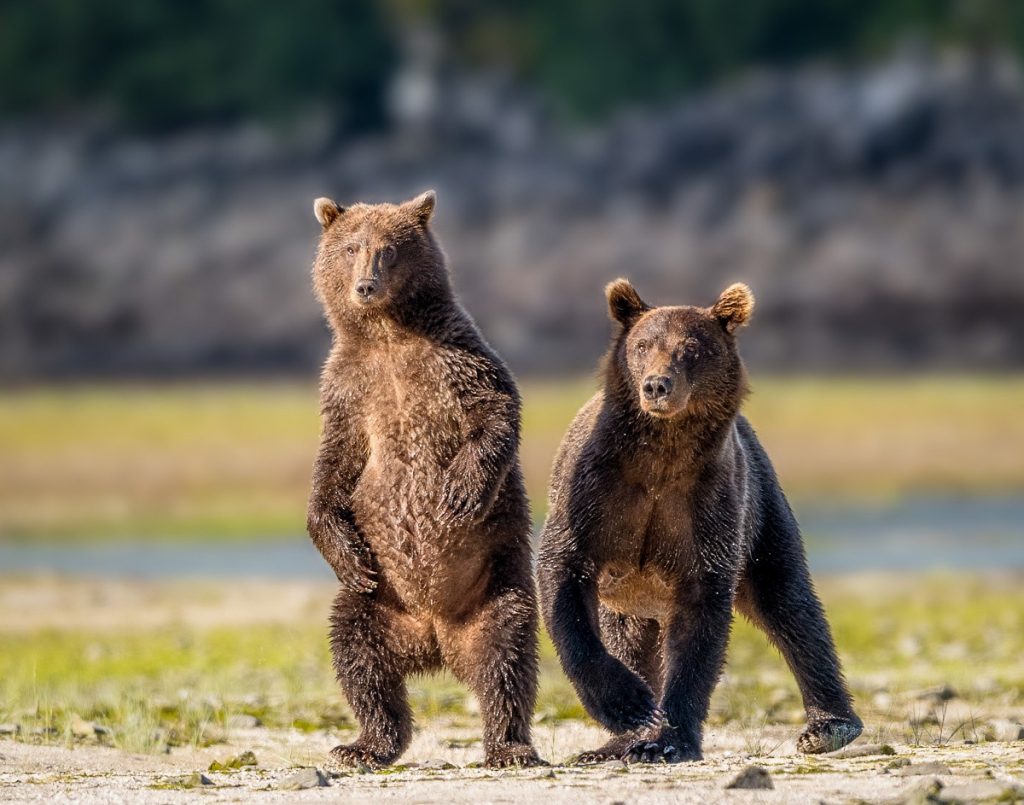
Pair Of Yearling Bear Cubs
Imagine that these two cubs are left on the side of the shore and they have no knowledge of how to survive. There are so many things that can go wrong. They don’t know how to find shelter nor do they know how to get food.
What Do Mother Bears Teach Their Cubs?
There are so many things that a mother bear can teach her cubs. They show them where to find food, they teach them where to find shelter, and they teach them what food is available to eat.
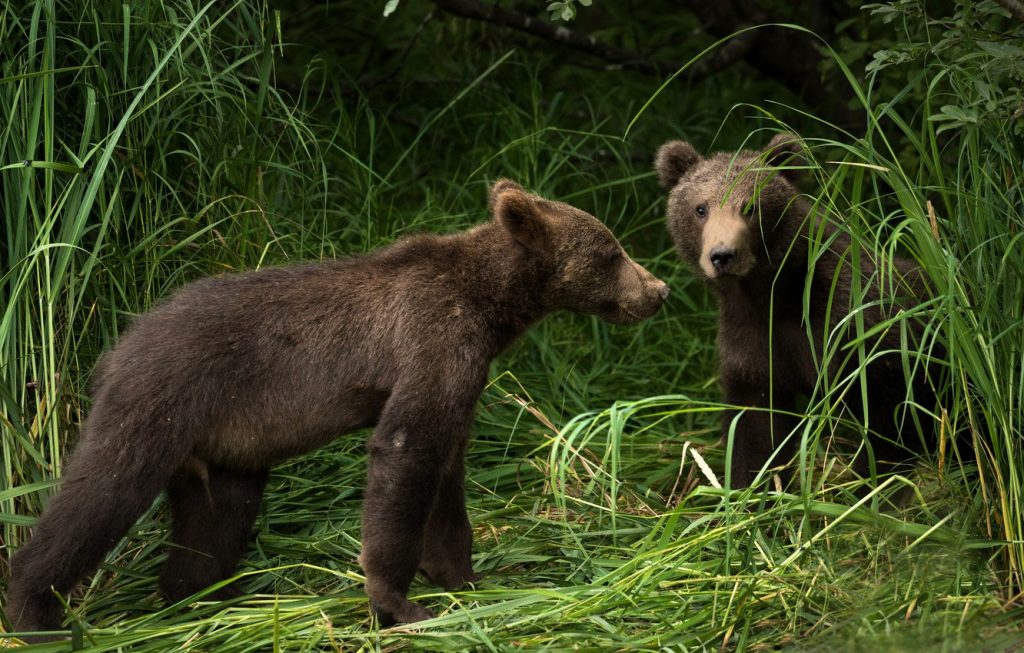
Little Bear Cubs
Another thing that mother bear teaches her cubs is how to interact with each other and other bears. Bears can be pretty social, especially in family groups, so this is an important trait to learn.
A Ray of Hope For The Cubs
Even if the mother has totally abandoned her cubs, there is a small ray of hope. It is possible that these cubs could be adopted by another bear. Sometimes, though it isn’t extremely common, a bear “adoption” will occur.
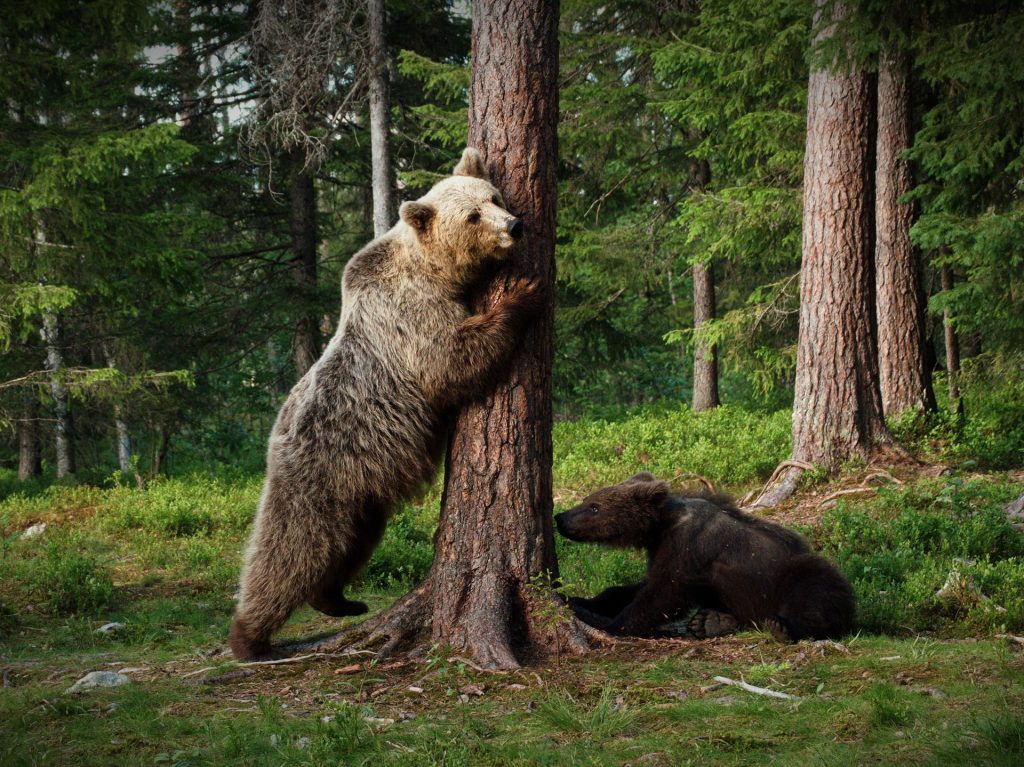
Bear Lessons
Sometimes a bear family will take on a new cub into their own. It is also possible that a mother bear who has lost her cubs will find new ones. There is also the chance that a bear cub will simply start following a different bear.
What Do the Fishermen Do Next?
With the fishermen nearing the shores of the island, they started to look for the mother bear. She probably wouldn’t be out in the open, though, as they tend to shy away from humans. Would they find her?
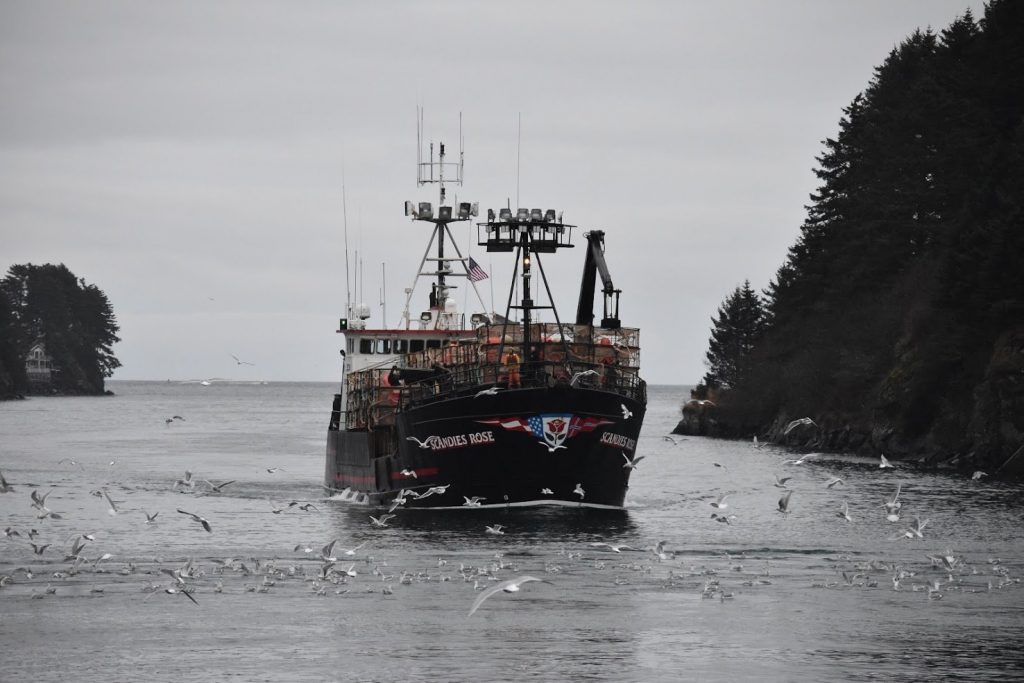
Boat Approaching An Island
The fishermen kept their eyes on the shore, hoping for some glimpse of the mother bear. If they didn’t see her, should they leave the bears to fend for themselves? Or should they try to take the bears to a place where they could get help?
Russian Bears
It would be unlikely that the fishermen could find help for the bears in Russia. First, there is a very large population of bears in this area, and there are not a lot of resources available for abandoned cubs.
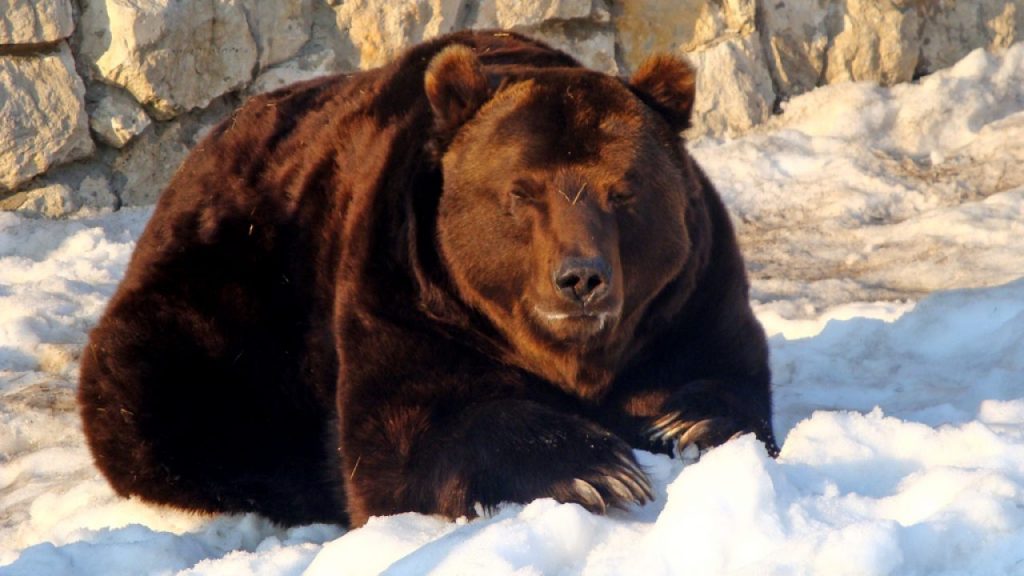
Russian Bear
In Russia, they certainly respect the power and strength of the bear, and at times, the country even uses the bear as its mascot. But, that doesn’t mean that the country has the resources to care for some abandoned cubs.
The Fishermen Make a Decision
The fishermen talked, and they decided on what they had to do: they had to put the cubs back on the island and hope for the best. Of course, the best case scenario would be that the mother bear would find her babies.
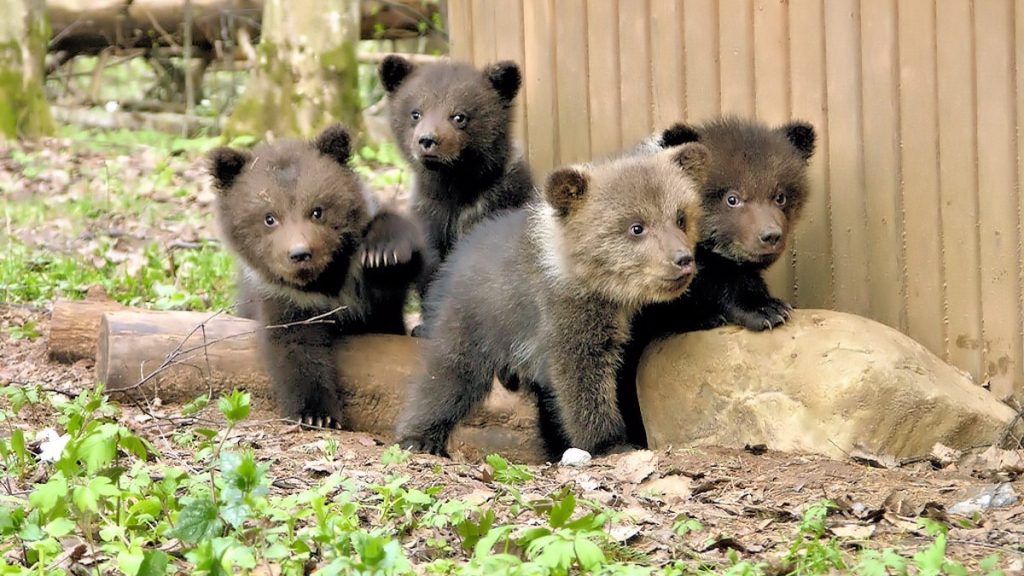
Baby Bear Cubs
The fishermen then started to look for the perfect spot to go ashore. They wanted it to be a place that would be safe for them to get off at, but also a good place to leave the little cubs so that the mother bear would find them.
Another Problem
Though this sounds like a great idea, there was another problem that the fishermen now had to deal with. If they got off the boat with the little cubs and the mother was watching, what would she do?
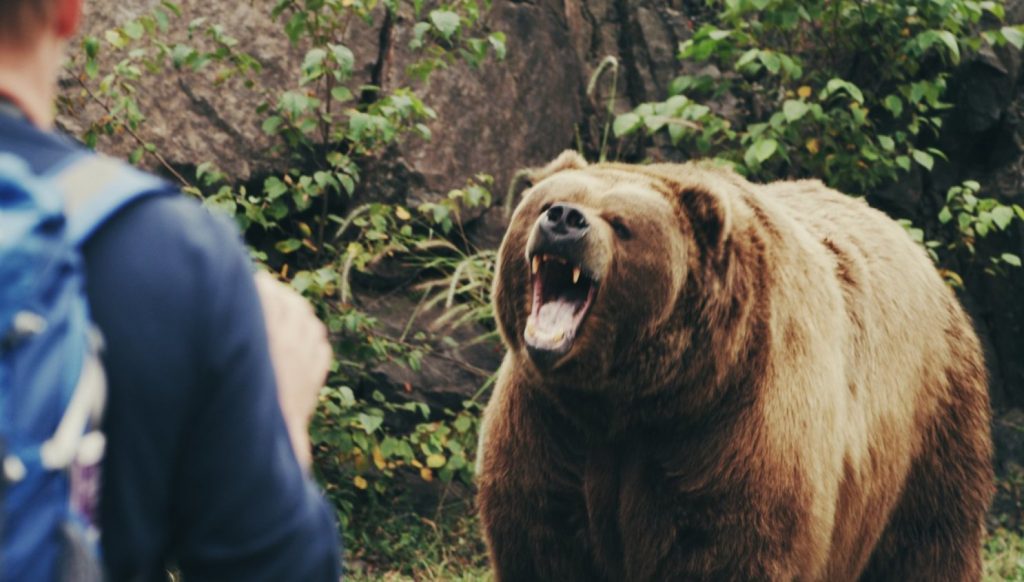
Bear Attacking
There was certainly the chance that she would attack the men if she saw them with her babies. Was that a chance that the fishermen were ready to take? How likely was it that a bear would attack them?
How Likely is a Bear Attack?
Most people believe that if you come between a mother bear and her cubs, that she will immediately attack. However, this is not actually true. In many cases, she will start running towards you, which is terrifying, but will she attack?
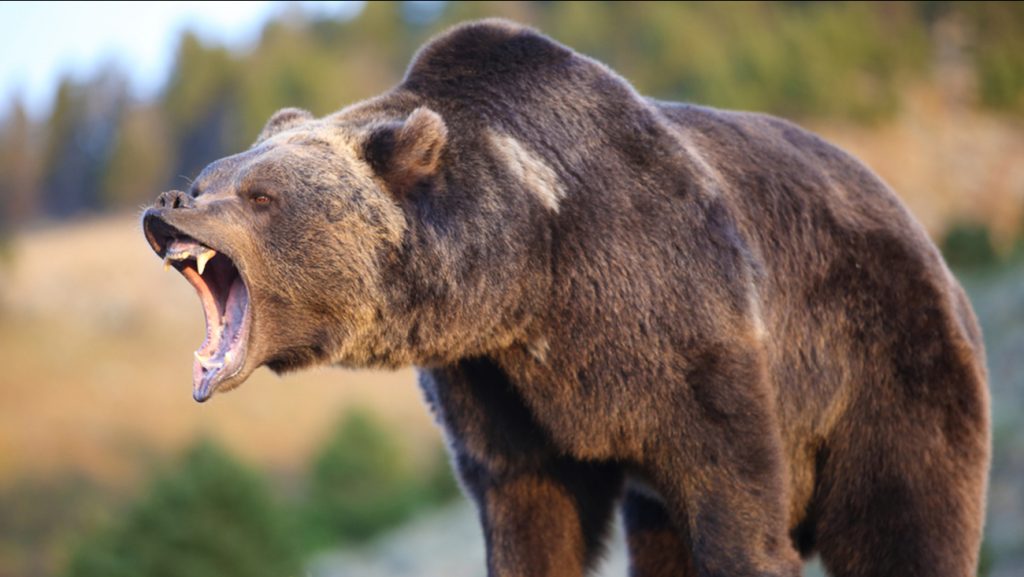
Growling Bear
Generally, a bear will simply run towards the offending person, but not actually attack them. It is usually only to scare them. In fact, there are thousands of interactions between bears and humans each year, and very few injuries.
The Fishermen Take a Chance
The fishermen decided that the odds were in their favor. So, they took the little bears, and they carried them to a rocky place on the island. They believed that once they put them down, they could quickly leave.
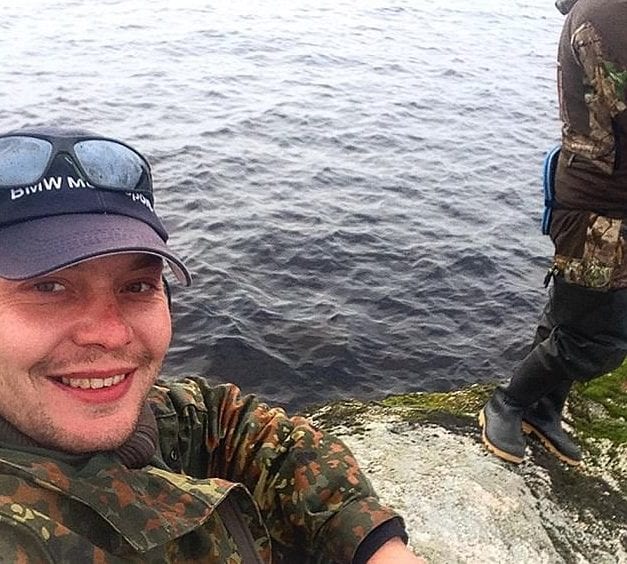
Island Of The Bears
This was actually a good idea, as even if the mother bear was watching from afar, it was not very likely that she would approach the cubs until the fishermen were gone. So, they dropped off the cubs, waved goodbye, and started once again out onto the lake.
A Happy Ending?
The fishermen didn’t wait around to see if the mother bear would come to get the cubs. However, these brave men had given these two little cubs their very best chance of survival. Without them, the bears surely would have died.
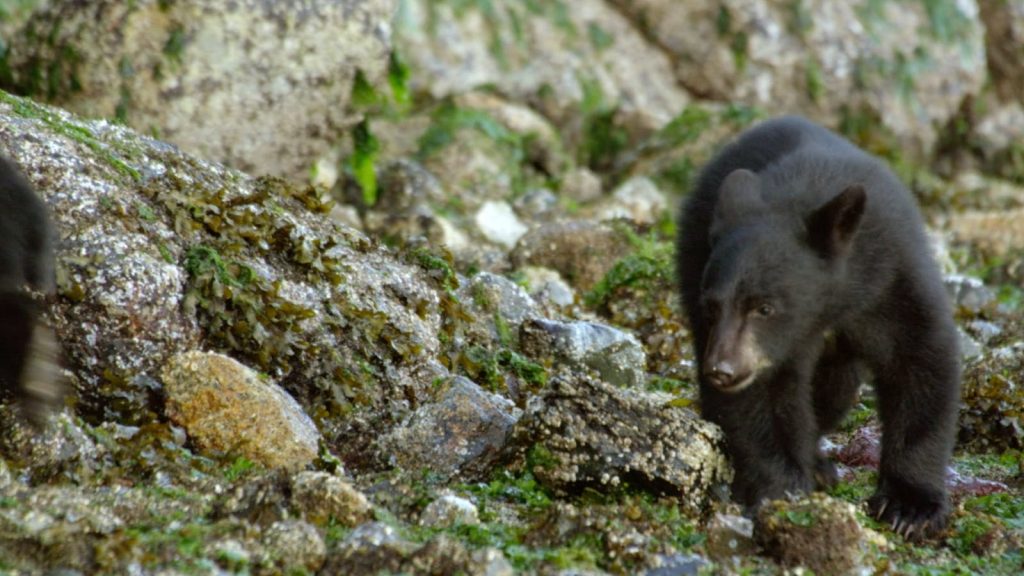
Baby Bear Cub
With the fishermen gone, and the cubs safely on land, the mother was now free to find her children. Though we don’t know what happened to the cubs, it is likely that their mother was looking for them, and the family was reunited.


